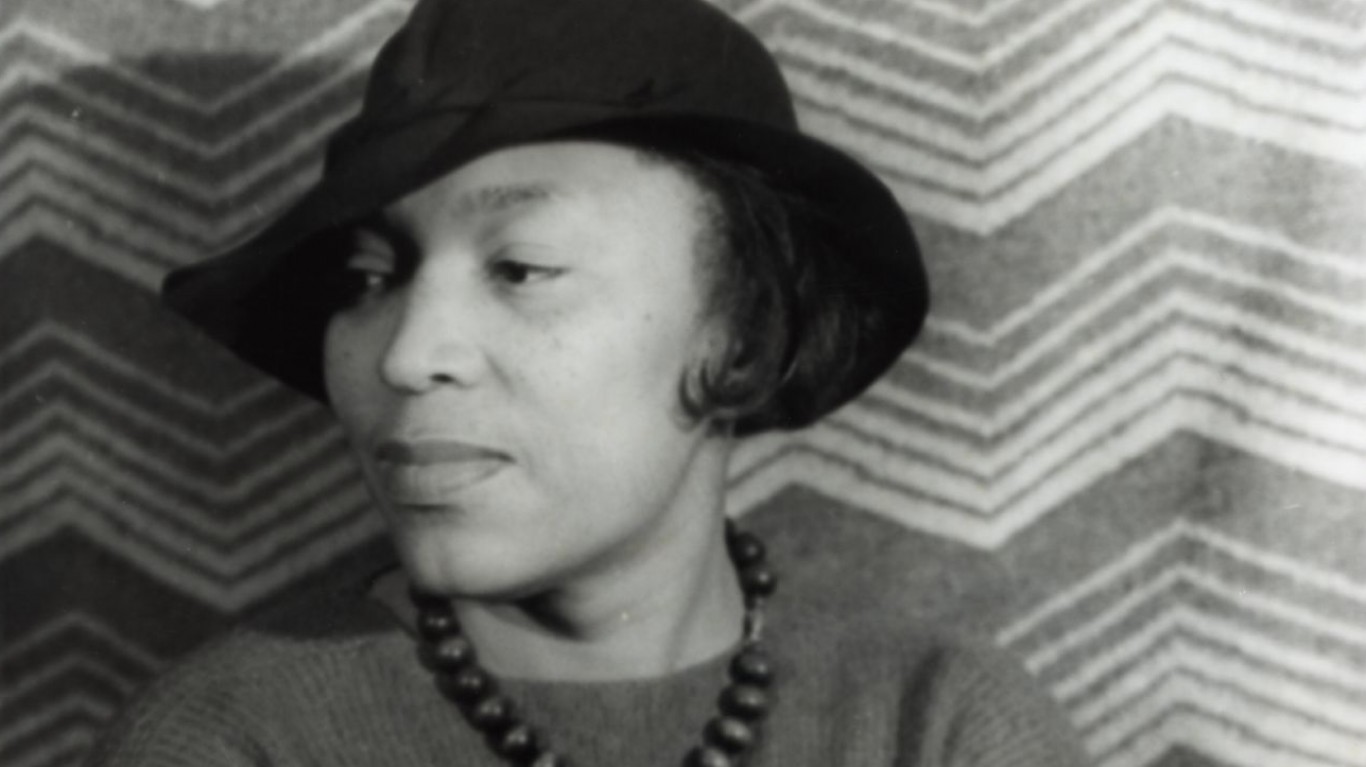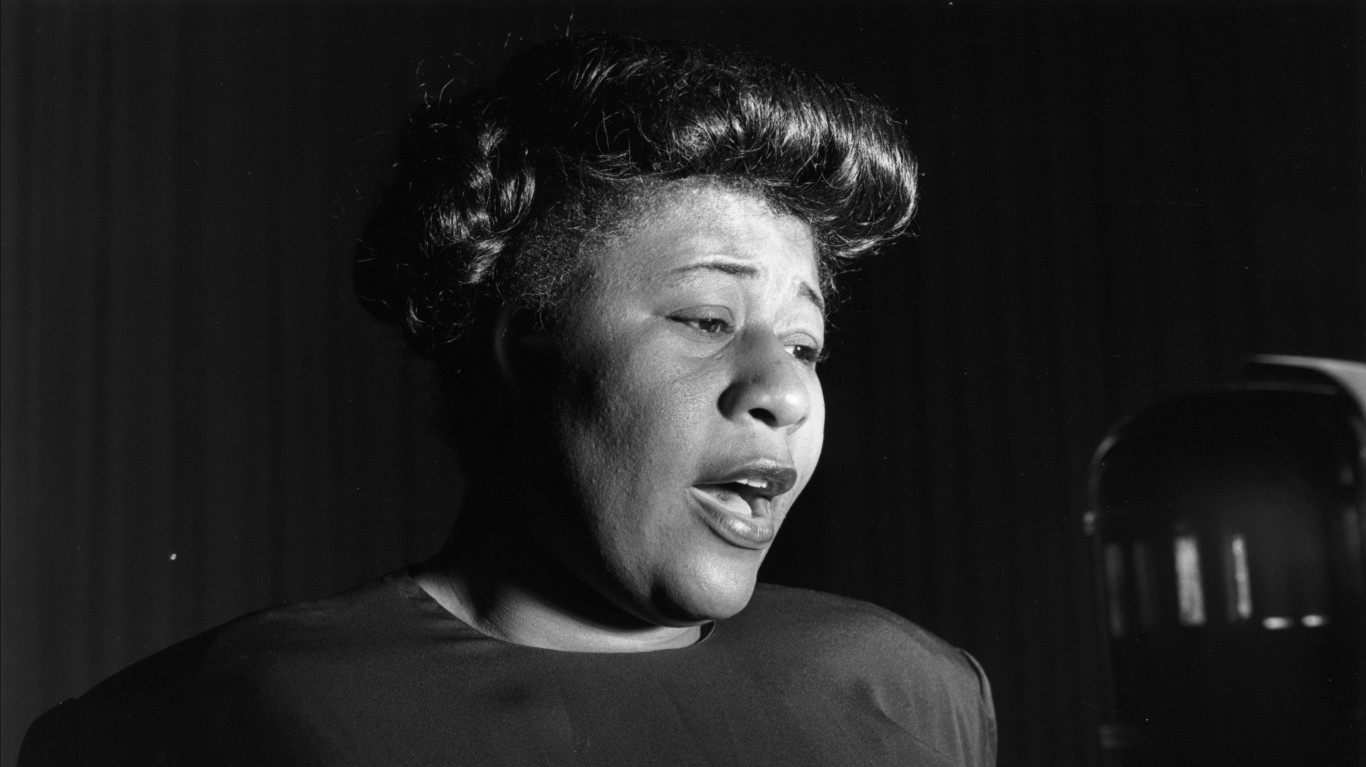
To compile a list of 33 Black women who have changed American history, 24/7 Wall St. reviewed a set of images of “African-American Women Changemakers” — including educators, activists, artists, and writers — assembled by the Library of Congress.
If there is one takeaway from the list, it is the power of will. Each of these women demonstrated a deep belief in themselves and their quest for achievement. Racist and sexist obstacles were not going to stand in their way. (These are the most segregated cities in America.)
The paths they took to success were varied. Althea Gibson faced down racism to become the first African-American, male or female, to win a Grand Slam event in tennis. Singers Ella Fitzgerald and Billie Holiday put American music on a new trajectory in the 20th century.
Shirley Chisolm and Barbara Jordan were pathfinders in politics. (These are the 19 of the most influential civil rights leaders of the 21st century.)
Besides suffering the indignity of racial bias, many on this list suffered physical harm as well. Activists such as Fannie Lou Hamer were beaten for sitting in a whites-only section of a bus station restaurant. Journalist Ida B. Wells — one of several women on the list who were born into slavery during the Civil War — wrote stories about lynching in the South and her stories endangered her life.
Click here to learn about 36 Black women who changed American history
Many know the story of Harriett Tubman and her tireless work to bring slaves to freedom on the Underground Railroad or of Rosa Parks and her principled defiance of segregated-bus rules in Alabama. But you might not know about Phillis Wheatley, who overcame enslavement in 18th-century Boston to become a poet celebrated in both New England and England itself, or operatic soprano Sissieretta Jones, who sang in six continents.
The stories of all these women point to a uniquely American experience of perseverance and resilience in the face of overwhelming odds.
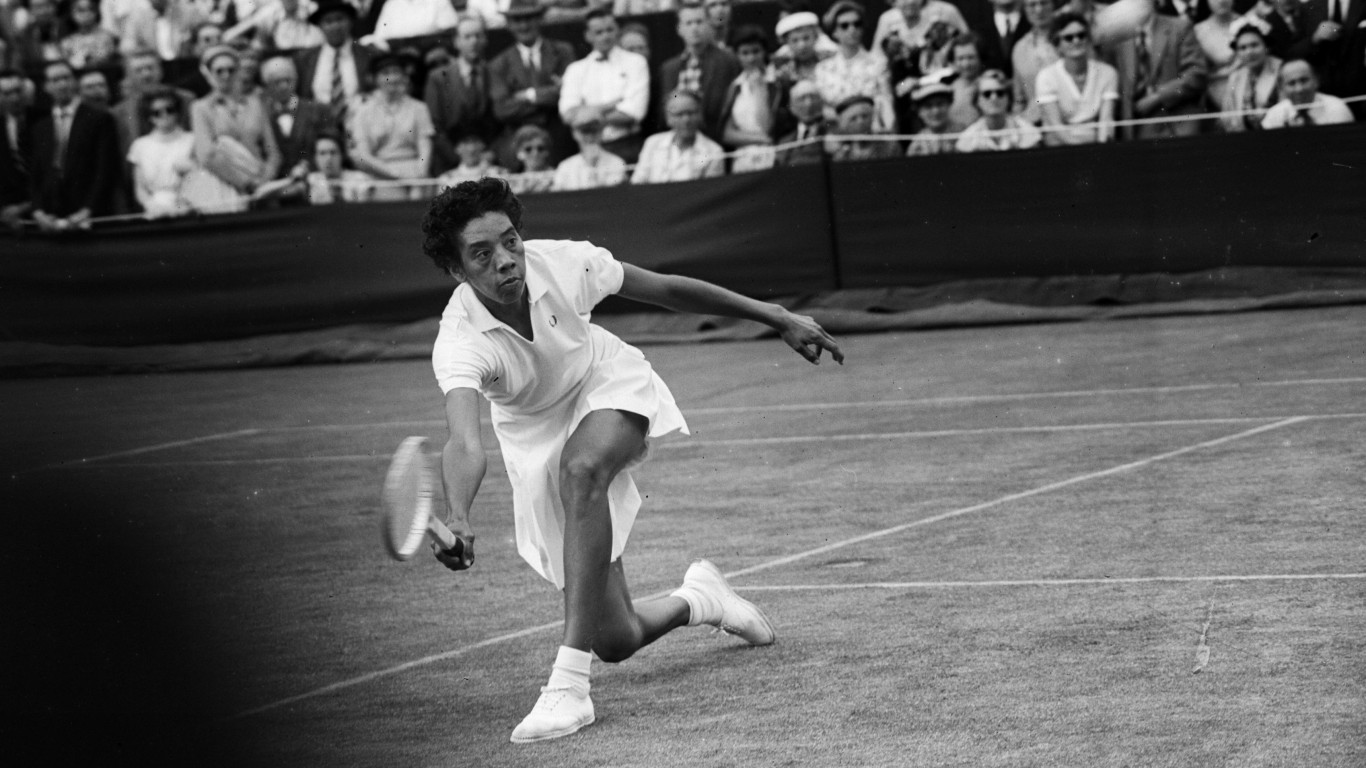
Althea Gibson
> Known as: Tennis player
> Life: 1927-2003
Althea Gibson overcame racial bias to become the first African-American tennis player to win a Grand Slam tournament — the French Championships in 1956. She went on to win four more singles Grand Slams and six doubles titles. Venus and Serena Williams, among many other women players, Black and otherwise, cite her as an inspiration.
[in-text-ad]
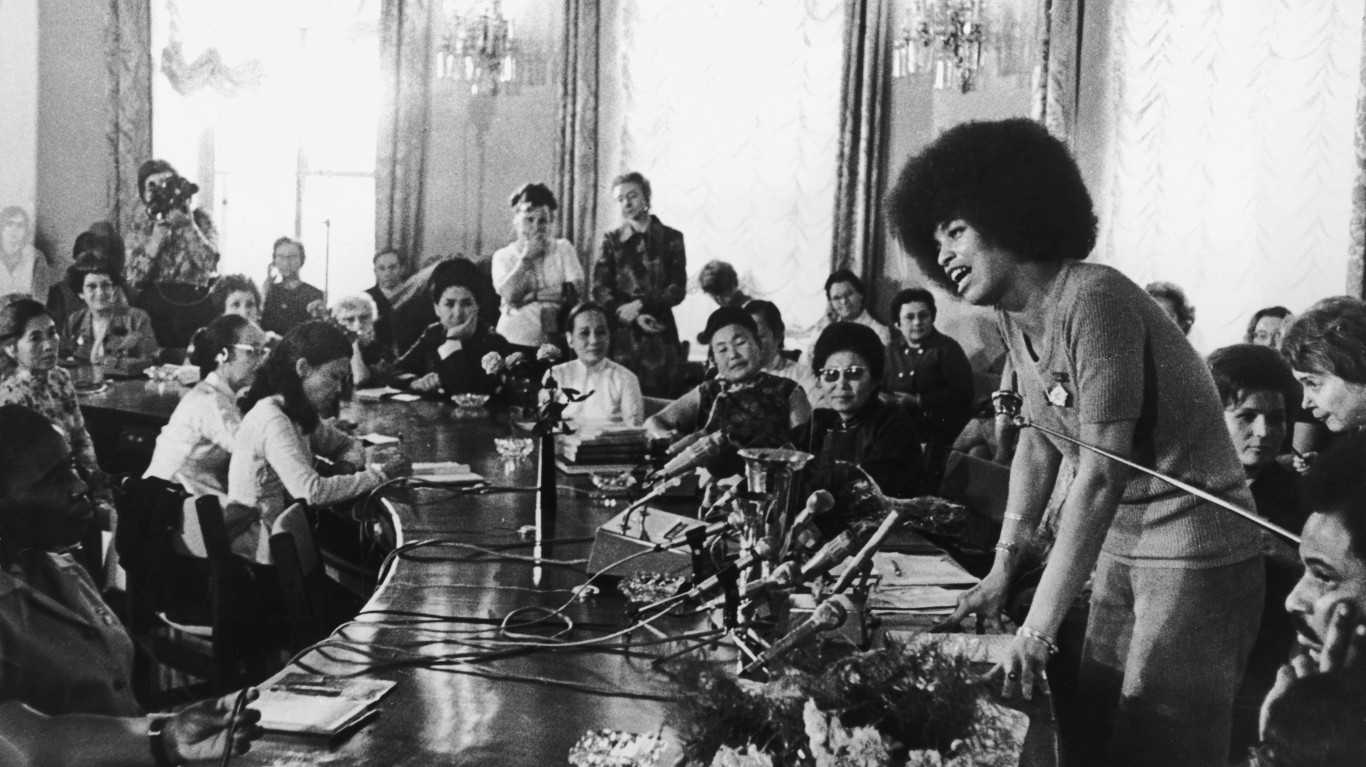
Angela Davis
> Known as: Professor, activist
> Life: 1944-present
Angela Davis was a major activist in the late 1960s and early ’70s. Profoundly affected by her childhood in the segregated city of Birmingham, Ala., she joined the Communist Party and became an affiliate of the Black Panthers as a young woman, and ran as the Communist vice-presidential candidate in 1980 and 1984. She was arrested, tried, and acquitted for her role in a Black Panther courtroom shootout. She went on to have a distinguished academic career at institutions including Pomona College, Rutgers, and Vassar, and has remained politically active.
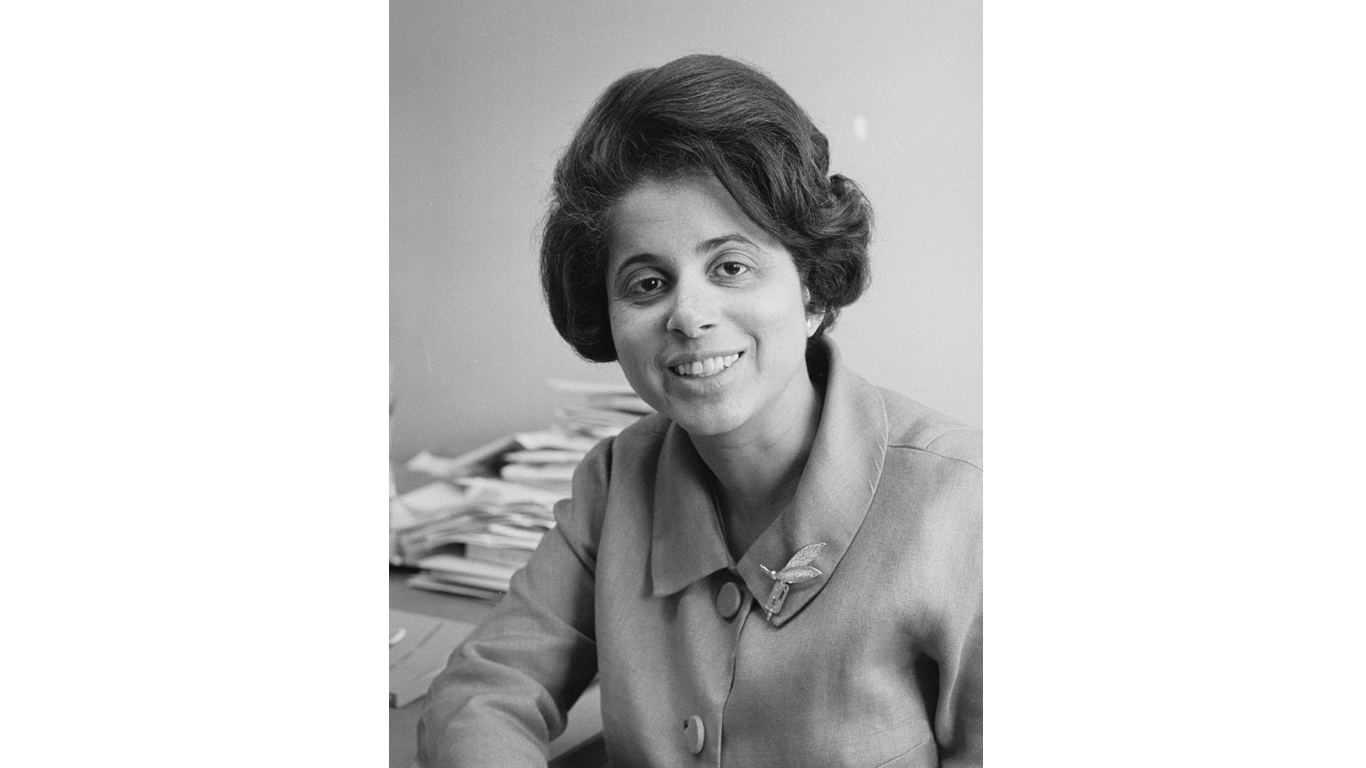
Patricia Harris
> Known as: Ambassador, professor
> Life: 1924-1985
Patricia Harris was a trailblazer. She was the first Black woman to serve as an American ambassador when she represented the United States in Luxembourg from 1965 to 1967, and the first appointed to a Cabinet when she was named Secretary of Housing and Urban Development in 1977.
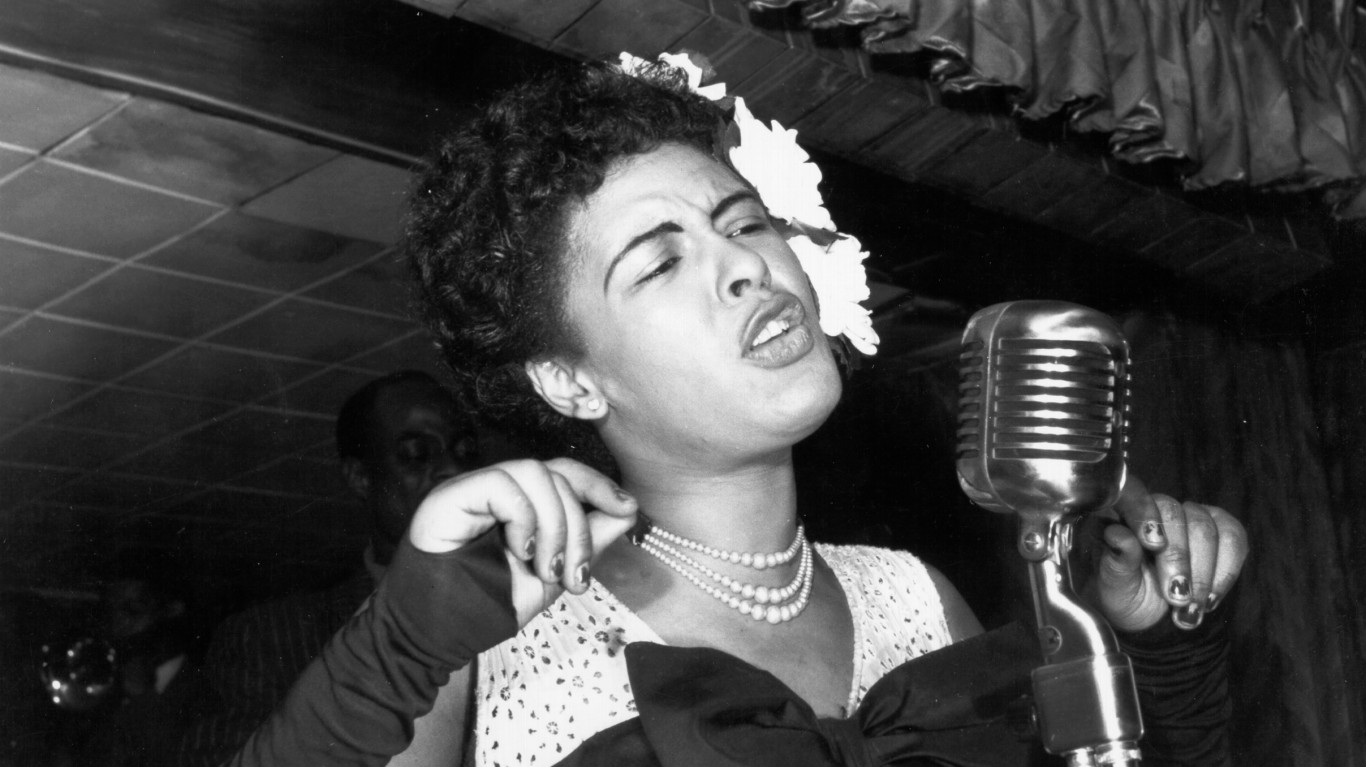
Billie Holiday
> Known as: Musician
> Life: 1915-1959
Billie Holiday, born Eleanora Fagan, was one of the greatest jazz singers of the 20th century. Holiday started working with Artie Shaw and his orchestra in 1938, becoming one of the first female African-American vocalists to work with a white orchestra. Her singing reflected her tumultuous life, which was marred by bouts of substance abuse. Her autobiography was made into the 1972 film “Lady Sings the Blues” starring Diana Ross.
[in-text-ad-2]
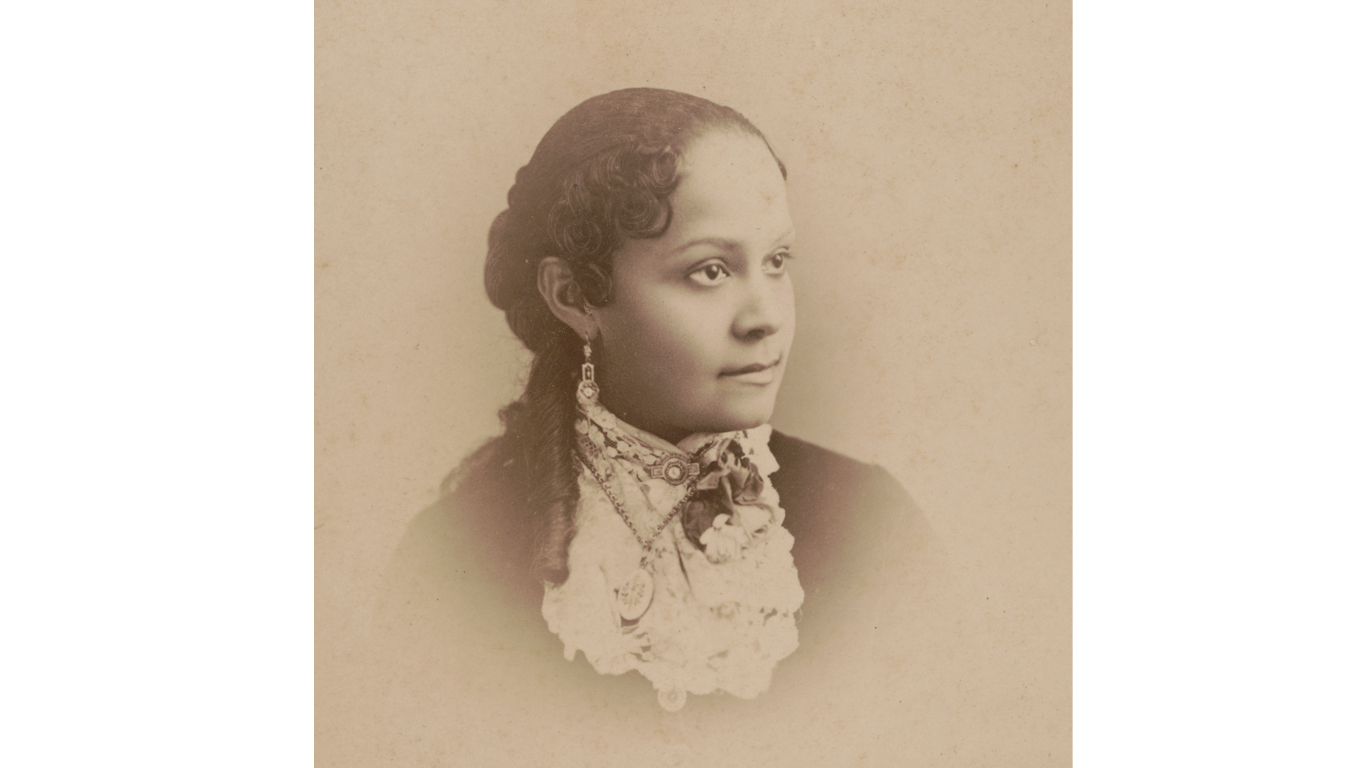
Fannie Barrier Williams
> Known as: Educator, activist
> Life: 1855-1944
Fannie Barrier Williams was an influential educator and activist who was a staunch advocate for freed slaves in the South. She spoke at the World’s Columbian Exposition in Chicago in 1893, expressing her concern over the lack of Blacks on the Board of Control for that cultural event. She helped found organizations such as the National League of Colored Women, the National Association of Colored Women, and the National Association for the Advancement of Colored People. She also supported women’s suffrage and in 1907, was the only African-American chosen to eulogize Susan B. Anthony at the 1907 National American Women Suffrage Association convention.
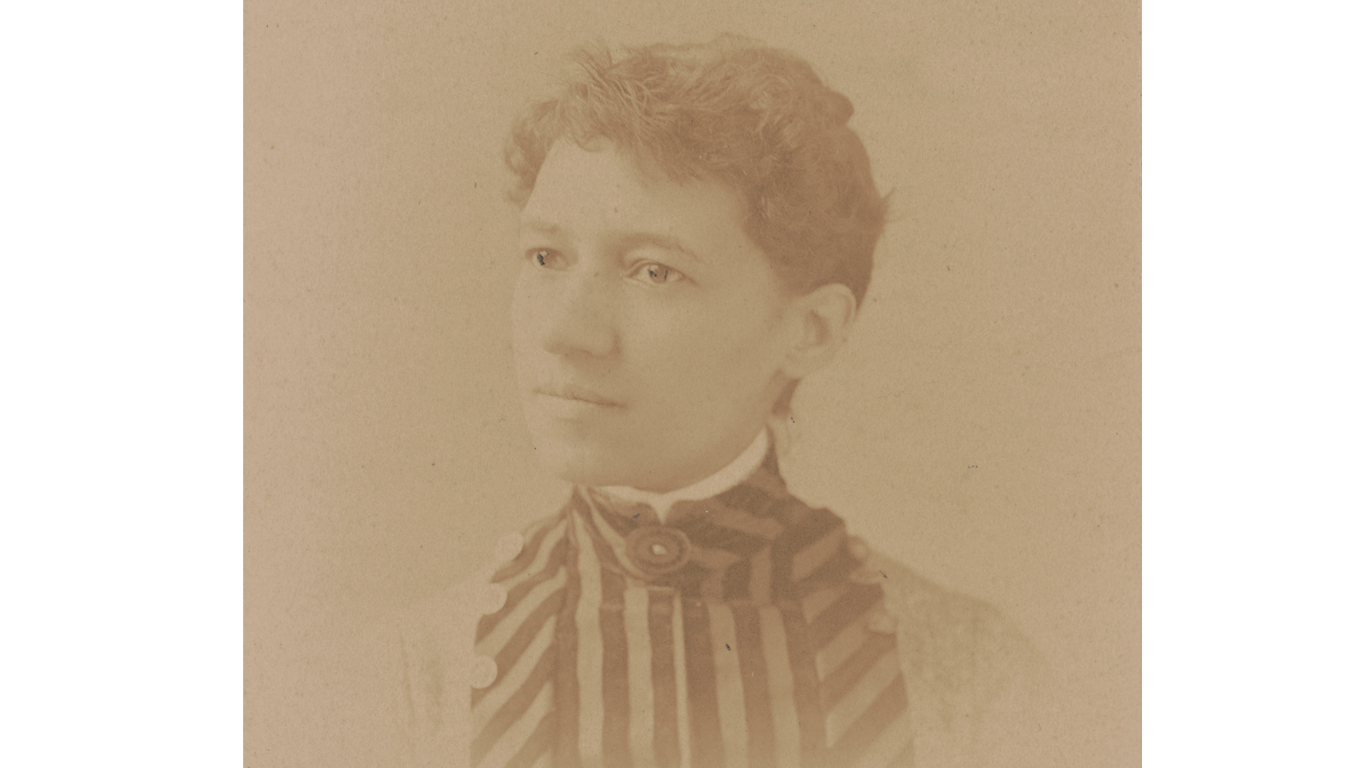
Maria ‘Molly’ Baldwin
> Known as: Educator, civic leader
> Life: 1856-1922
Maria ‘Molly’ Baldwin was a teacher and civic leader in Cambridge, Mass. She became master of the Agassiz School, a public school for middle-class white children, in 1916. She was one of only two women masters in Cambridge schools and the only African-American in New England with that distinction. During Baldwin’s tenure, the Agassiz School was considered one of the best in Cambridge. The 12 teachers who served under her were all white.
[in-text-ad]
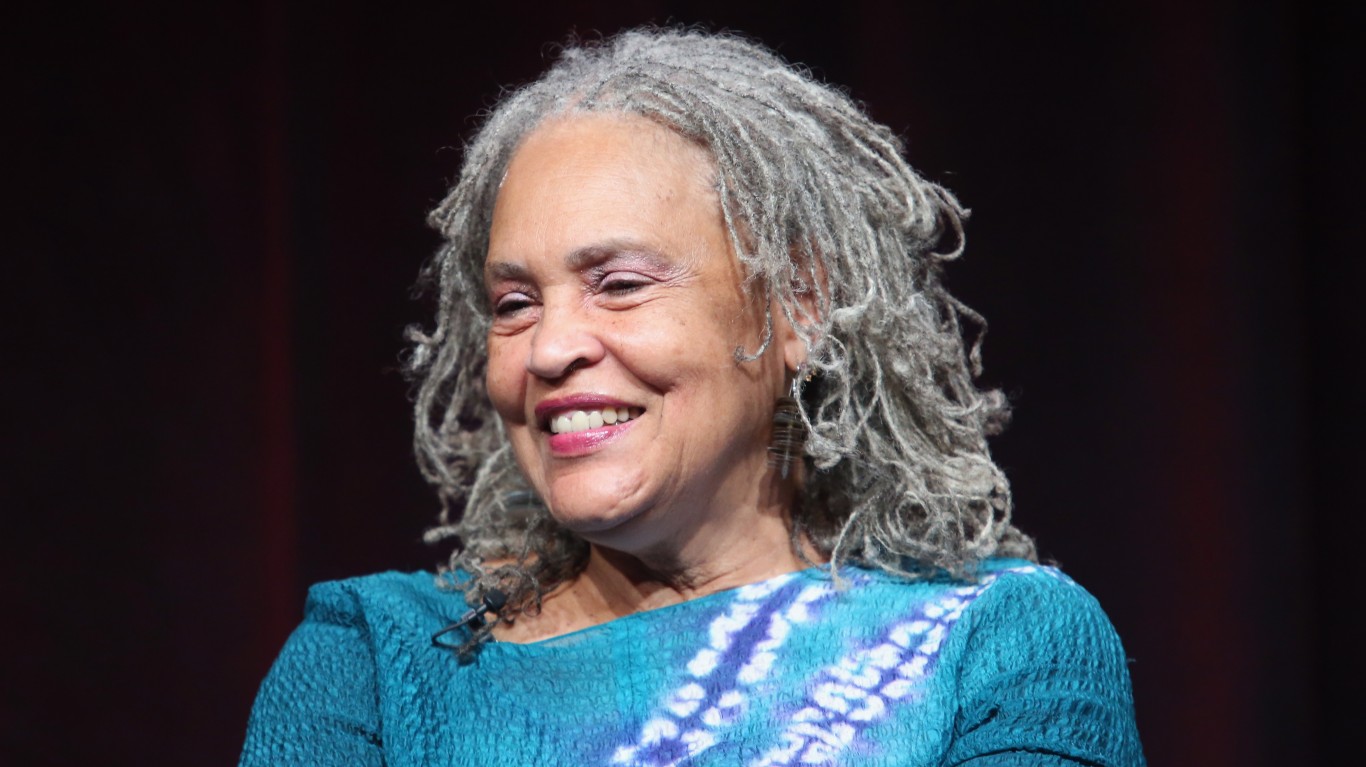
Charlayne Hunter-Gault
> Known as: Journalist
> Life: 1942-present
Television viewers are familiar with the work of Charlayne Hunter-Gault. She joined the well-respected PBS news program MacNeil/Lehrer Report in 1978 and later served as Johannesburg bureau chief for CNN. Before her journalism career, Hunter-Gault was one of the first two African-Americans to attend the University of Georgia.
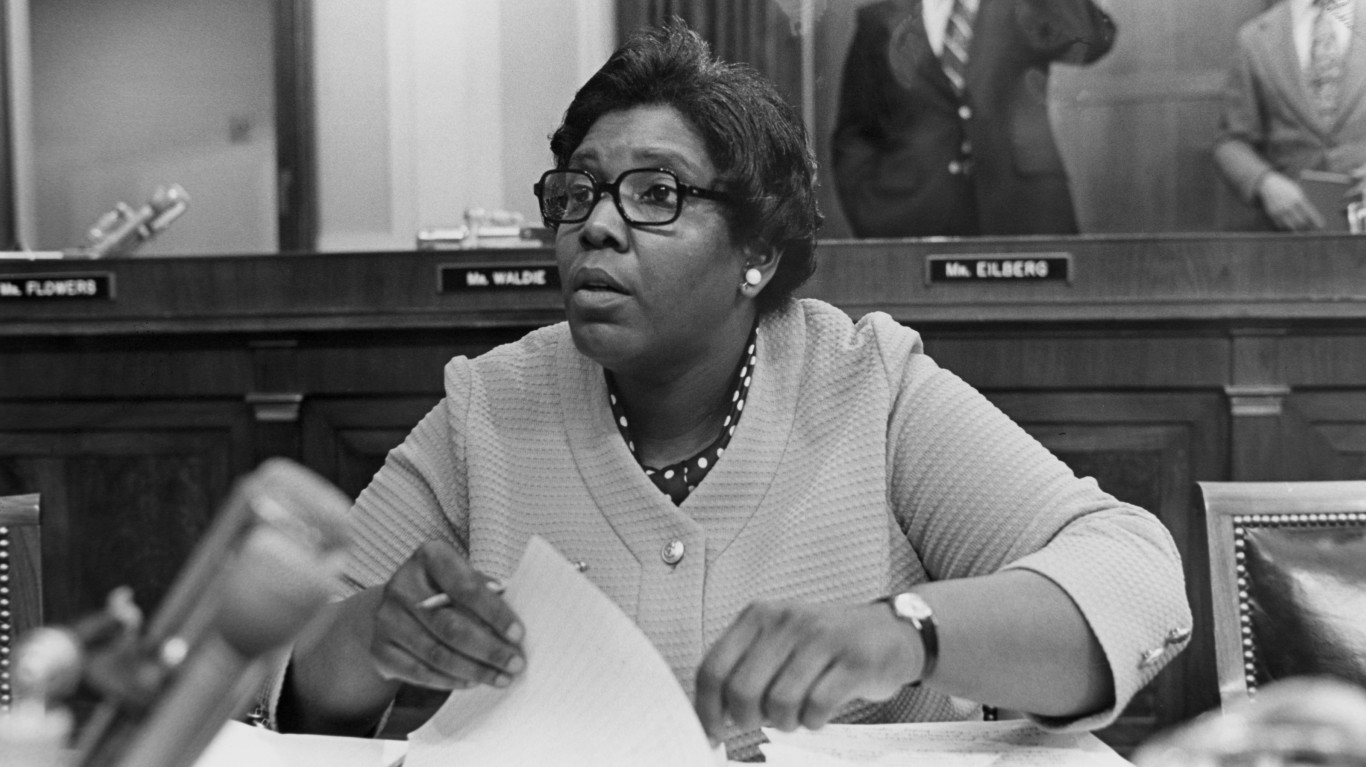
Barbara Jordan
> Known as: Politician, educator
> Life: 1936-1996
The Watergate scandal helped thrust Barbara Jordan into the national spotlight. While sitting on the House Judiciary Committee, the congresswoman eloquently explained why she supported articles of impeachment against Richard Nixon. In 1972, Jordan and Andrew Young Jr. became the first African-Americans elected to Congress in the 20th century.
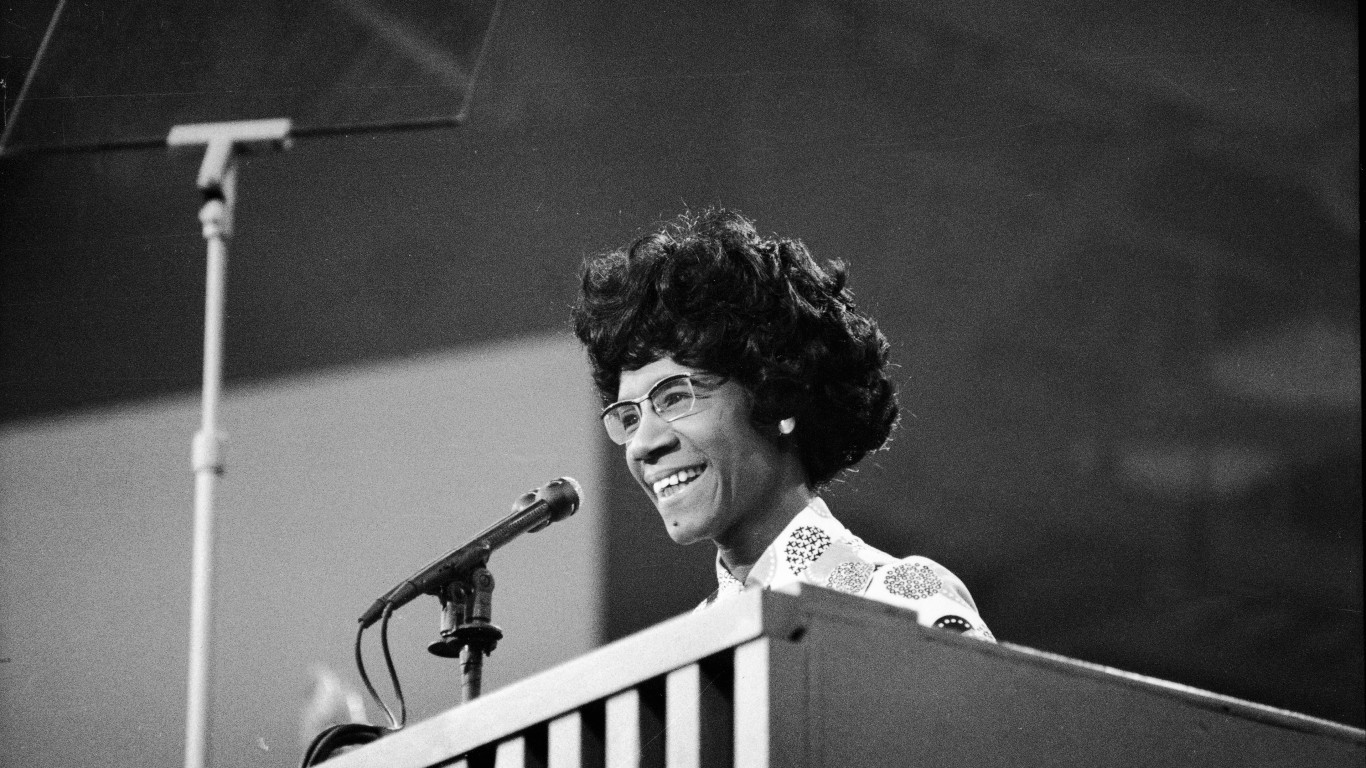
Shirley Chisholm
> Known as: Politician, presidential candidate
> Life: 1924-2005
Known as “Fighting Shirley,” Shirley Chisholm was the first African-American woman elected to Congress, serving the first of seven terms beginning in 1969. She was also the first woman and first African-American to seek the nomination for president from one of the two major political parties — the Democrats — in 1972. Chisolm fought for racial and gender equality, advocated for the poor, and opposed the Vietnam War.
[in-text-ad-2]
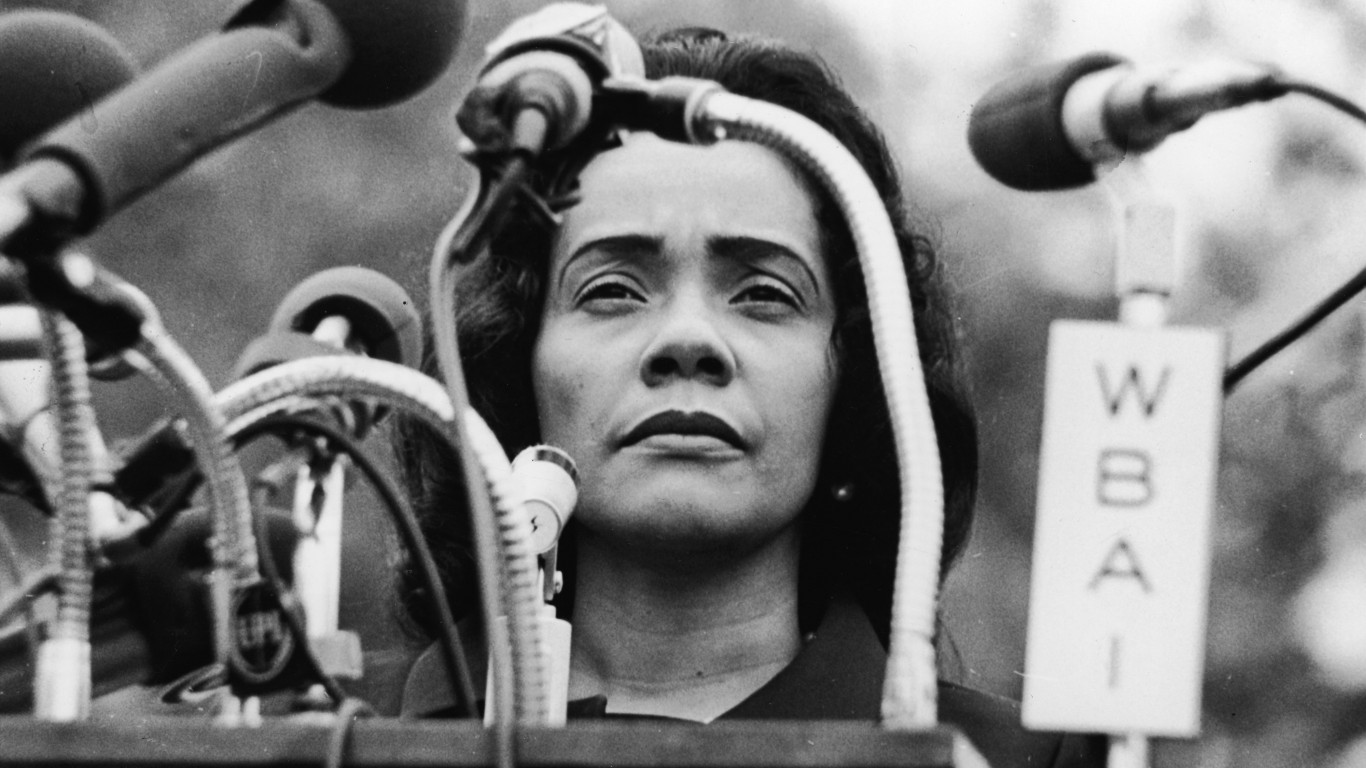
Coretta Scott King
> Life: 1927-2006
The widow of Dr. Martin Luther King, Coretta Scott King continued the work of her slain husband. She founded the Martin Luther King, Jr., Center for Nonviolent Social Change in Atlanta. She also wrote a memoir, “My Life with Martin Luther King, Jr.,” as well as other books pertaining to Dr. King.
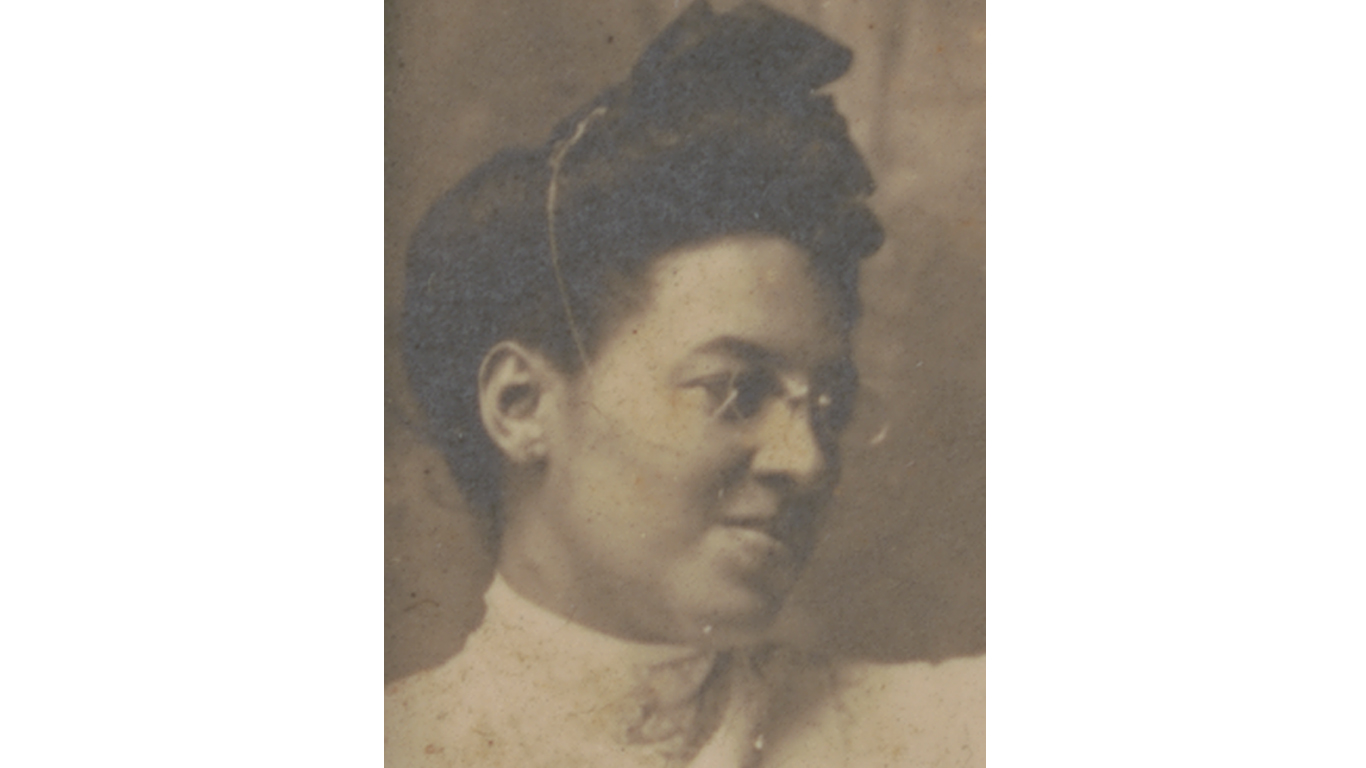
Emma Azalia Smith Hackley
> Known as: Musician, activist
> Life: 1867-1922
Emma Azalia Smith Hackley was a woman of many talents: singer, teacher, journalist, and activist. She learned the piano and violin as a child, studied opera in Paris, and became a choir director. She edited the women’s section of The Colorado Statesman, worked as an elementary school teacher, and gave singing lessons to such artists as Marian Anderson, Roland Hayes, and R. Nathaniel Dett. Co-founder of the Colored Women’s League, she combatted racial discrimination all her life.
[in-text-ad]
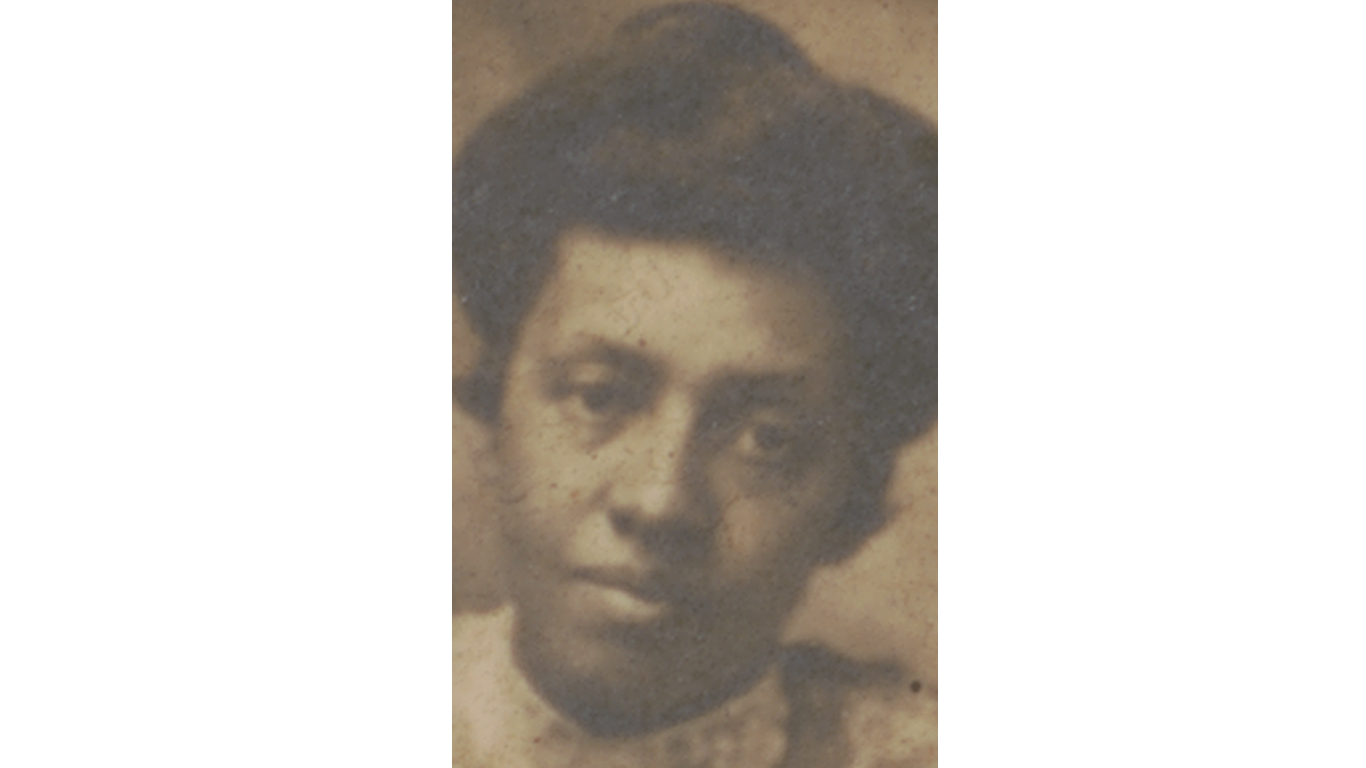
Elizabeth Carter Brooks
> Known as: Educator, activist, architect
> Life: 1867-1951
The daughter of a slave owned by President John Tyler, Brooks studied architecture and design at the Swain Free School in her native New Bedford, Mass., became New Bedford’s first African-American teacher, founded the community’s NAACP chapter, helped open the New Bedford Home for the Aged and contributed to its design. She believed that it was important to preserve buildings associated with Black history, and worked to recognize and protect them.
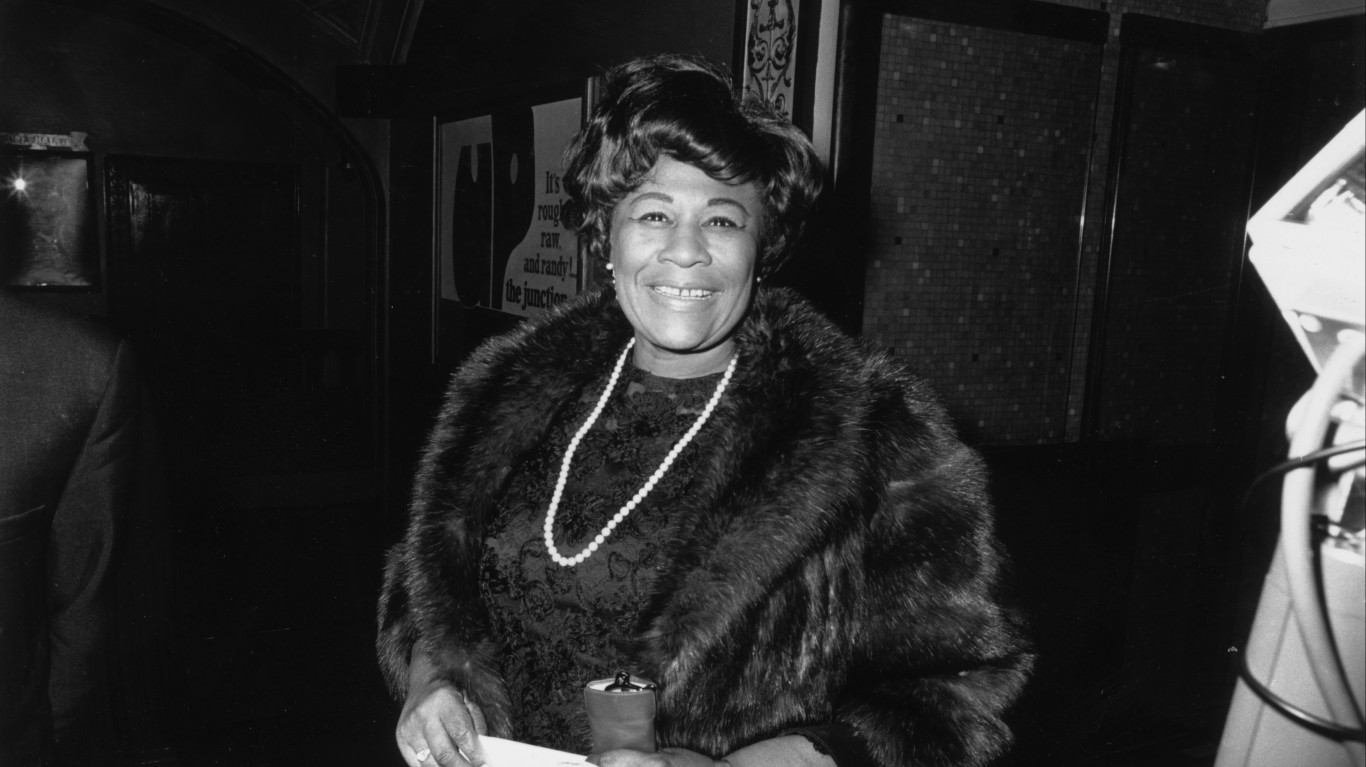
Ella Fitzgerald
> Known as: Singer
> Life: 1917-1996
Certain celebrities are known just by their one name, and Ella is one of them. She was one of the greatest singers of the 20th century, despite racial bias that kept her out of famous performing venues for much of her early career. She won 13 Grammy awards and sold over 40 million albums. Fitzgerald performed with the greatest performers of the 20th century, among them Duke Ellington, Count Basie, Nat King Cole, Frank Sinatra, and Benny Goodman.
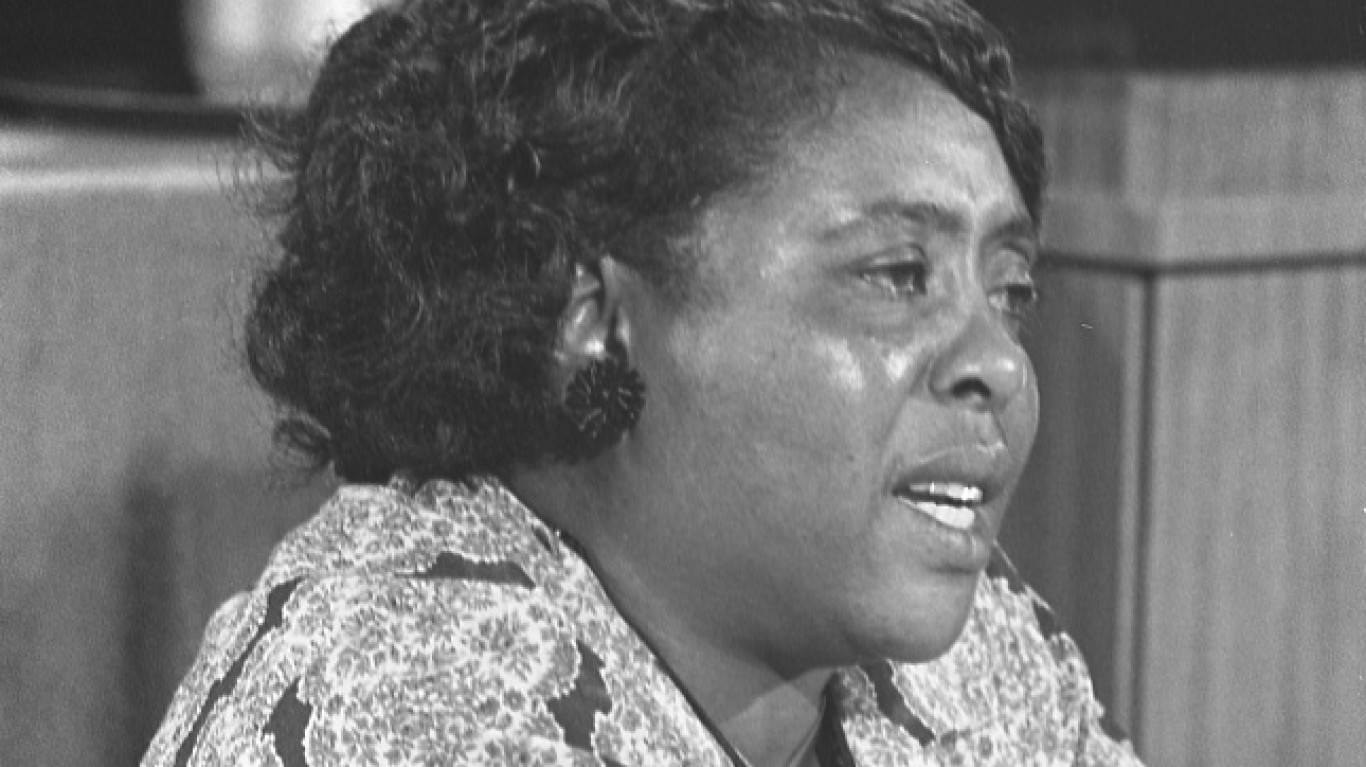
Fannie Lou Hamer
> Known as: Politician, activist
> Life: 1917-1977
Few civil rights advocates had it harder than Fannie Lou Hamer. The daughter of Mississippi sharecroppers, she was arrested and beaten for sitting in a whites-only section of a bus station restaurant. She gained national attention in 1964 when her Mississippi Freedom Democratic Party challenged the Democratic Party’s efforts opposing Black participation. She was thwarted then, but her efforts led to Mississippi’s first integrated Democratic Party delegation four years later.
[in-text-ad-2]
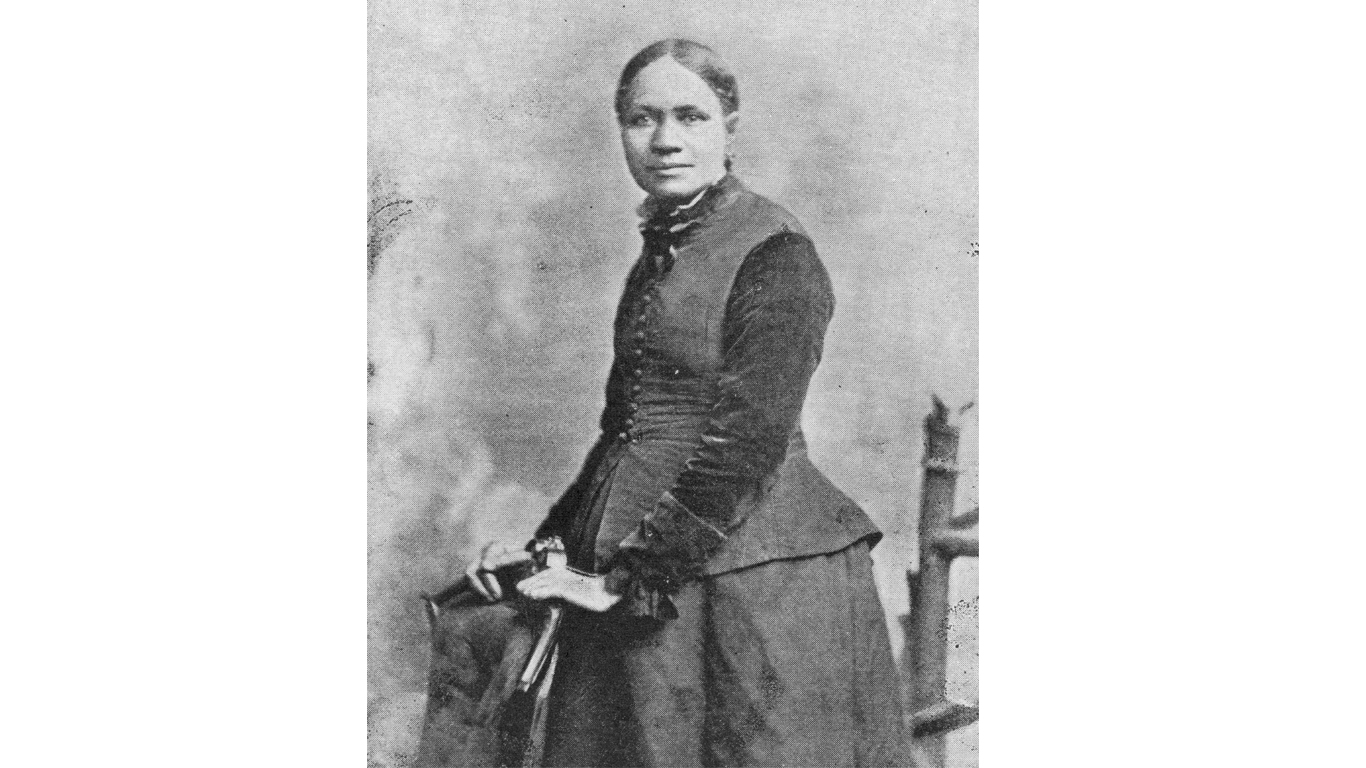
Frances E.W. Harper
> Known as: Poet, author, activist
> Life: 1825-1911
Frances E.W. Harper was a suffragist, an organizer for the National Woman’s Christian Temperance Union, and an abolitionist who was inspired to the cause by her uncle, civil rights activist Rev. William J. Watkins Sr. She traveled across the U.S. and Canada, giving speeches to anti-slavery organizations and advocating for women’s rights and prohibition. She published her first volume of poetry when she was only 20, and at the age of 67, published “Iola Leroy” — one of the first novels written by a Black woman.
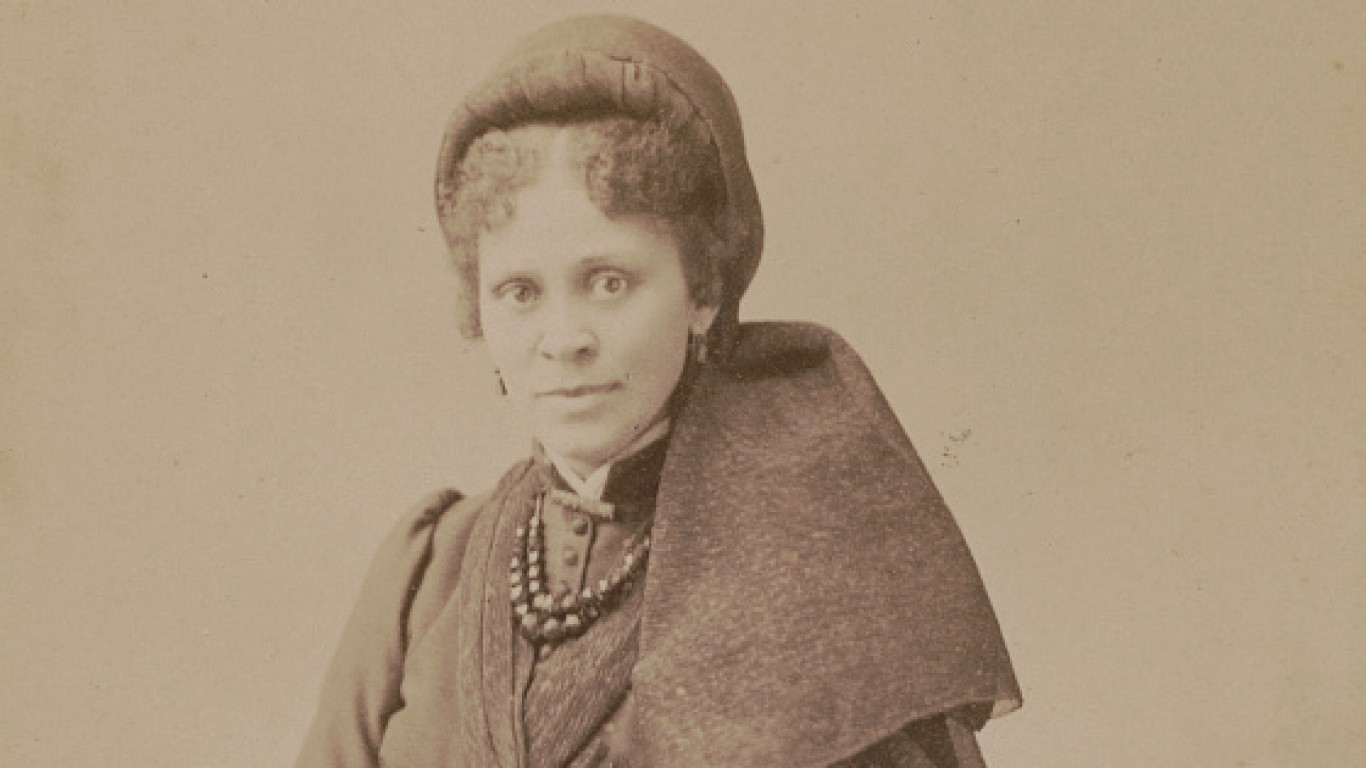
Hallie Quinn Brown
> Known as: Educator and activist
> Life: 1850-1949
The daughter of slaves who grew up in Canada, Brown taught in planatation schools in Mississippi and South Carolina. She became a famous lecturer and toured Europe in the 19th century, lecturing about African-American life and temperance. Queen Victoria was in attendance at several of her lectures.
[in-text-ad]
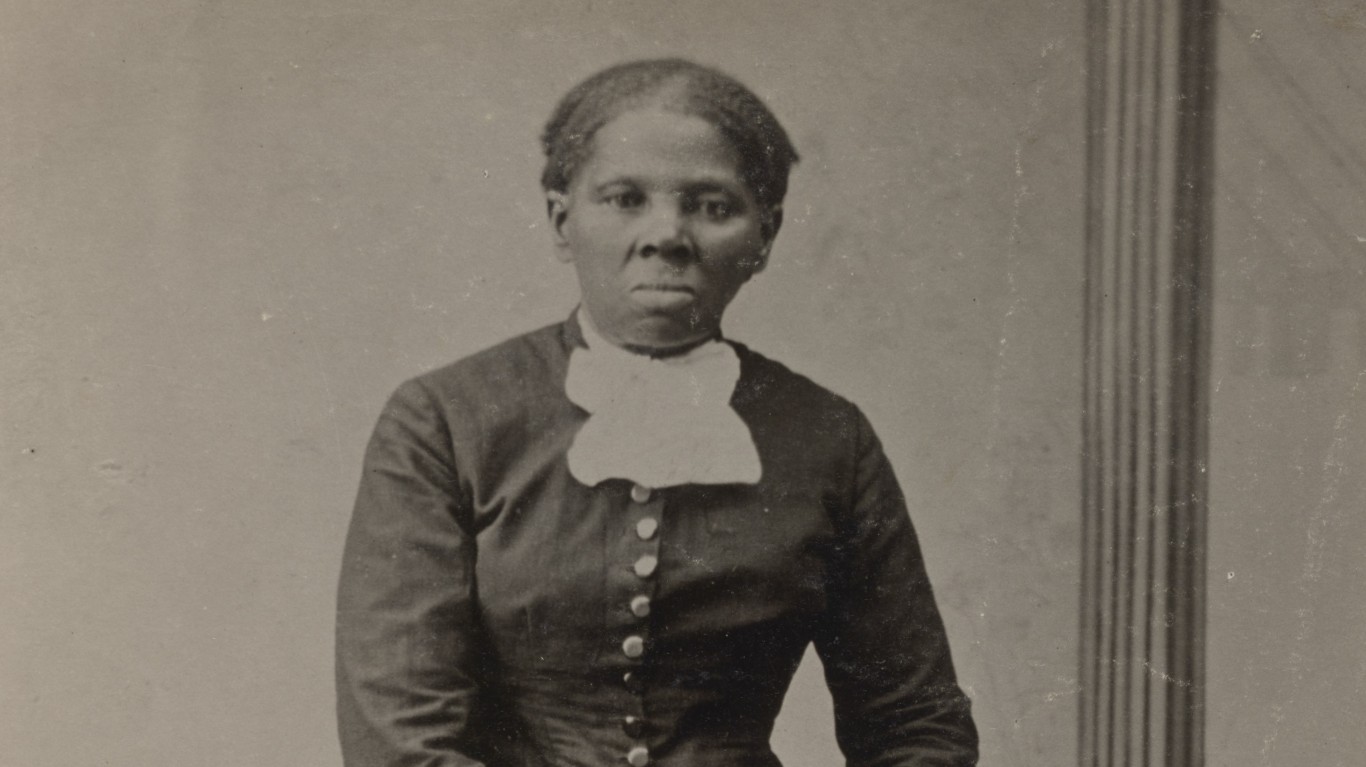
Harriet Tubman
> Known as: Abolitionist
> Life: 1820-1913
Dubbed the “Moses of her people,” Harriet Tubman is one of the most famous abolitionists ever. A slave herself, she escaped in 1849 and helped others gain freedom via the Underground Railroad. Such was her success that slave owners offered a reward of $40,000 for her capture or death. During the Civil War, Tubman was a spy for the Union Army, and she became an active supporters of women’s suffrage.
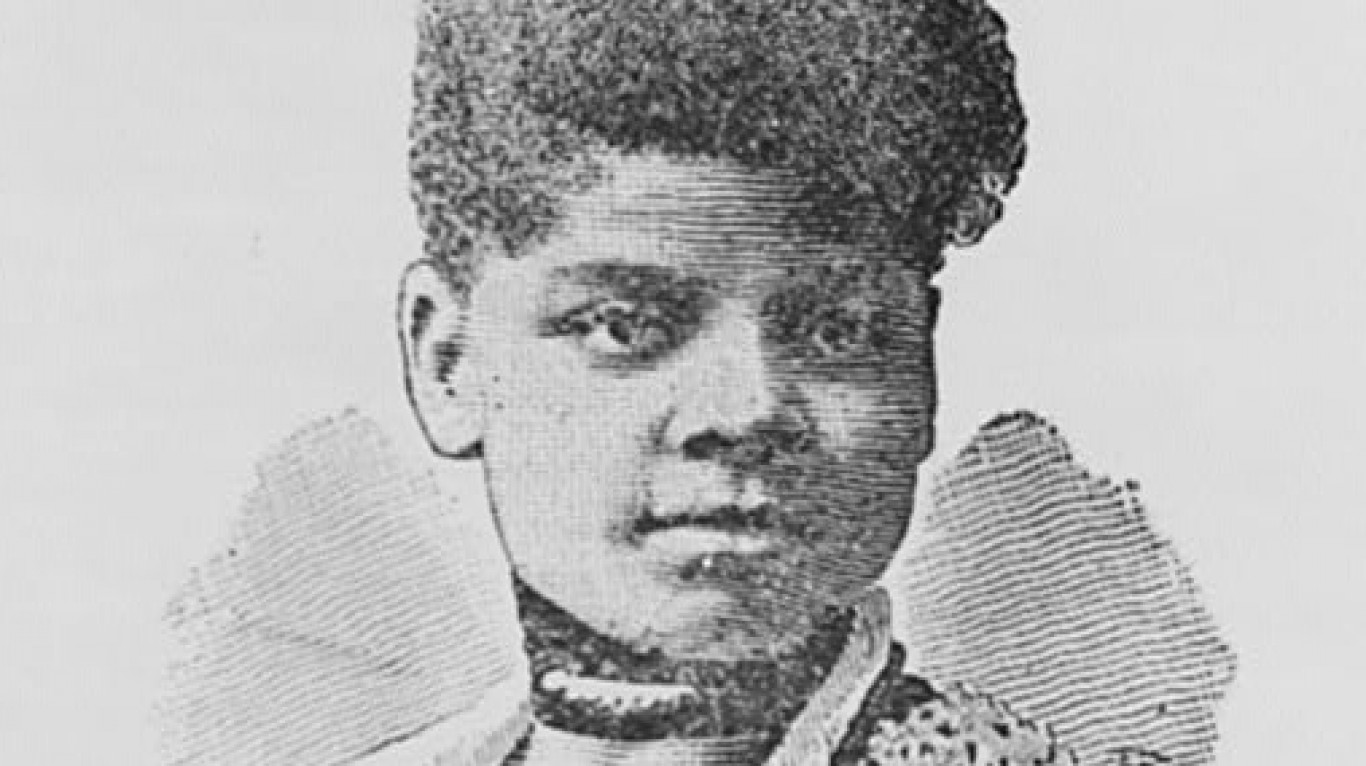
Ida B. Wells
> Known as: Journalist, teacher
> Life: 1862-1931
Born into slavery during the Civil War, Ida B. Wells became a teacher and later passionately documented and protested the lynching of African-Americans, publishing stories that put her life at risk. She took on segregation head on when she accused a train company in Memphis, Tenn., of unfair treatment. She won the case in local court but it was overturned on the federal level. She toured England as part of her anti-lynching campaign, and was active in civil rights and women’s suffrage issues. She was also involved with the founding of the NAACP.
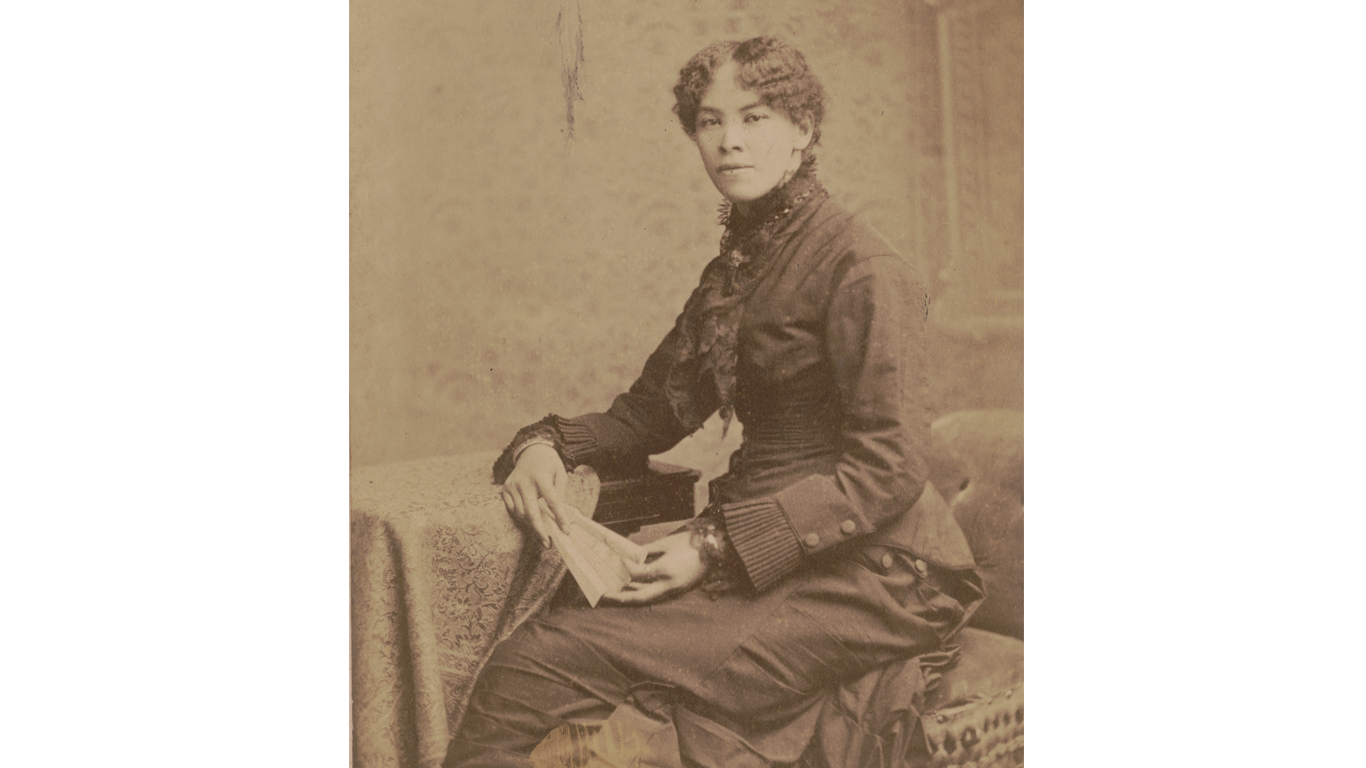
Josephine A. Silone Yates
> Known as: Writer, professor
> Life: 1852-1912
Long Island-born Josephine A. Silone Yates moved to Rhode Island to live with an aunt, where she became the only African-American student in her Newport, R.I., high school, and the first Black to graduate from the school. She eventually moved to Missouri and became one of the most respected teachers in that state, becoming the first Black woman to become chair of a college science department (she had been trained in chemistry) and possibly the first to be named a full professor at any institution of higher learning in the country.
[in-text-ad-2]
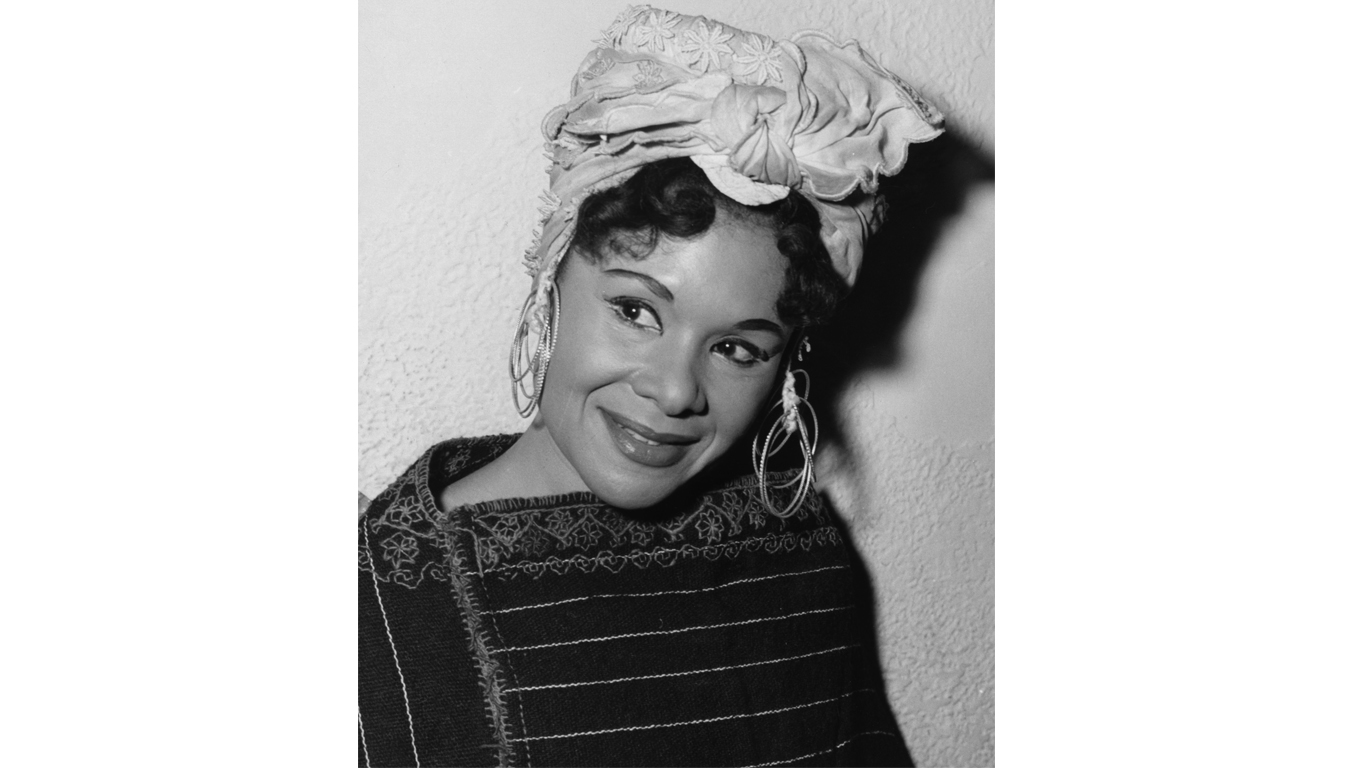
Katherine Dunham
> Known as: Dancer, choreographer
> Life: 1909-2006
Katherine Dunham was a change agent in American dance in the 1930s, tapping into the origins of Black dance and Caribbean choreography and integrating them into American entertainment. Dunman had her own dance troupe, and was one of the founders of the anthropological dance movement. She was a director in the Federal Theater Project, a government-sponsored relief program for artists that included Orson Welles and John Houseman.
[in-text-ad]
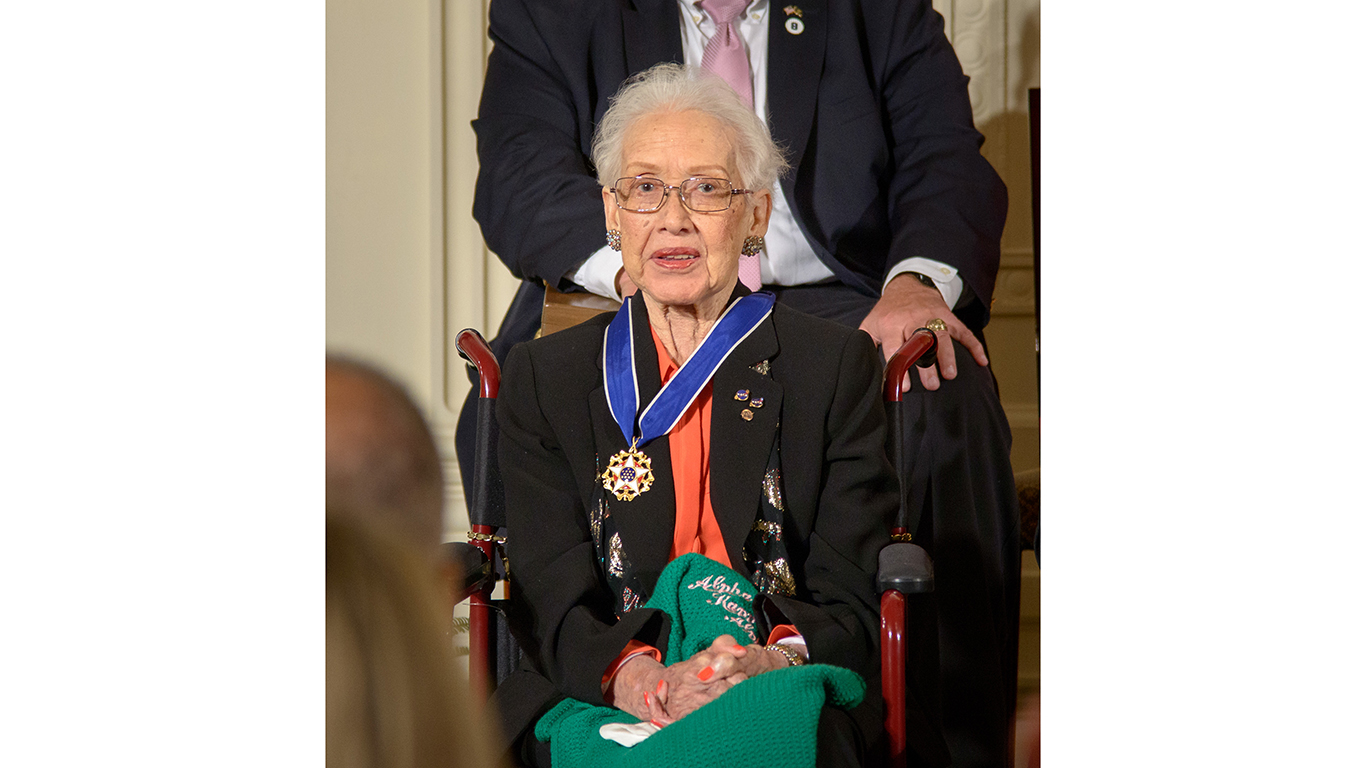
Katherine Johnson
> Known as: Scientist
> Life: 1918-2020
Katherine Johnson was profiled in the film “Hidden Figures” as a NASA mathematician whose trajectory calculations helped astronaut Alan Shepard become the first American in space. Her skills were crucial in calculating orbital equations that led to the success of astronaut John Glenn’s Friendship 7 mission in which he orbited the Earth successfully. Johnson also was a pathfinder in her native West Virginia, where she was among the first African-Americans to integrate West Virginia University.
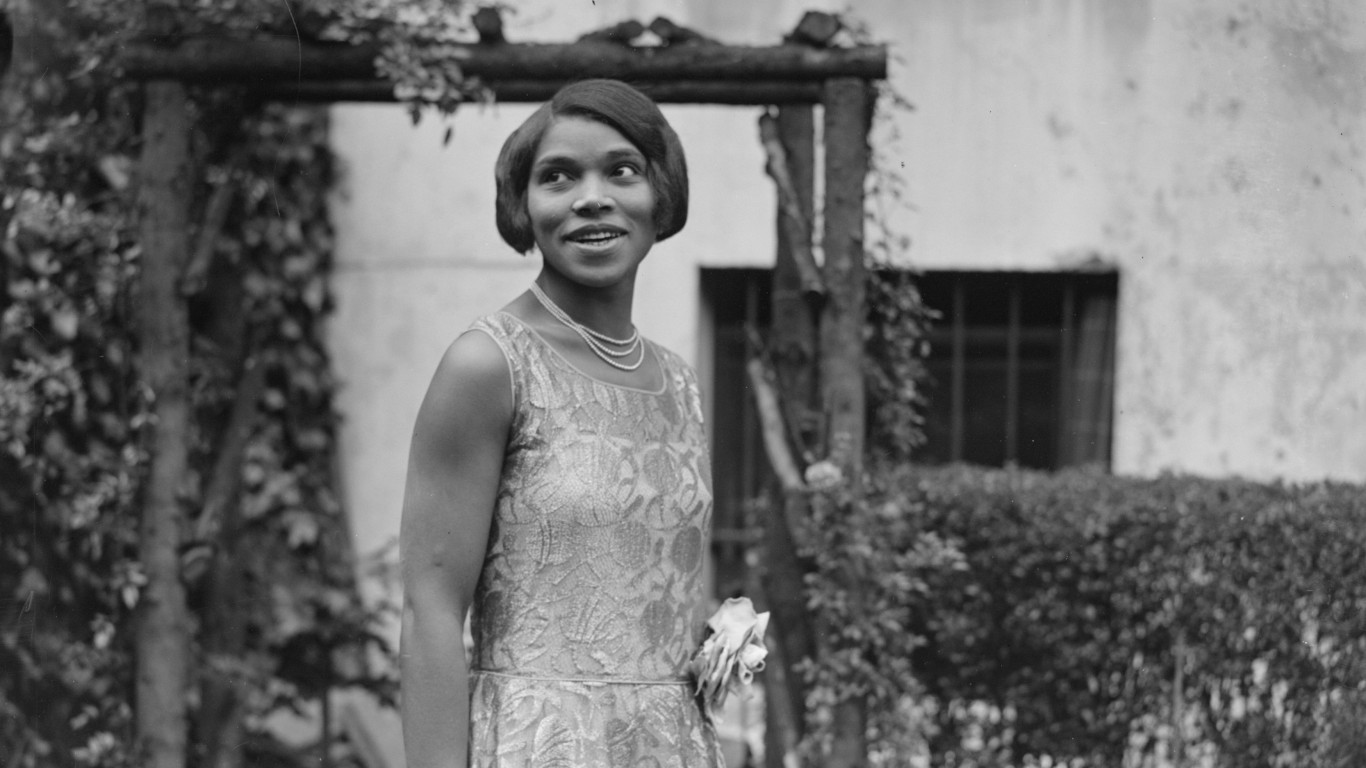
Marian Anderson
> Known as: Opera singer
> Life: 1897-1993
Marian Anderson was one of the greatest American contraltos of the 20th century and the first African-American to perform with the New York Metropolitan Opera. When the Daughters of the American Revolution refused to allow Anderson to perform at Constitution Hall in Washington, D.C., in 1939, the public was outraged. First Lady Eleanor Roosevelt invited her to sing instead at the Lincoln Memorial on Easter Sunday the same year, in a performance heard by millions of radio listeners. She was later a delegate to the United Nations Human Rights Committee and a U.S. State Department goodwill ambassador, and in 1963 was one of the first-ever Presidential Medal of Freedom recipients.
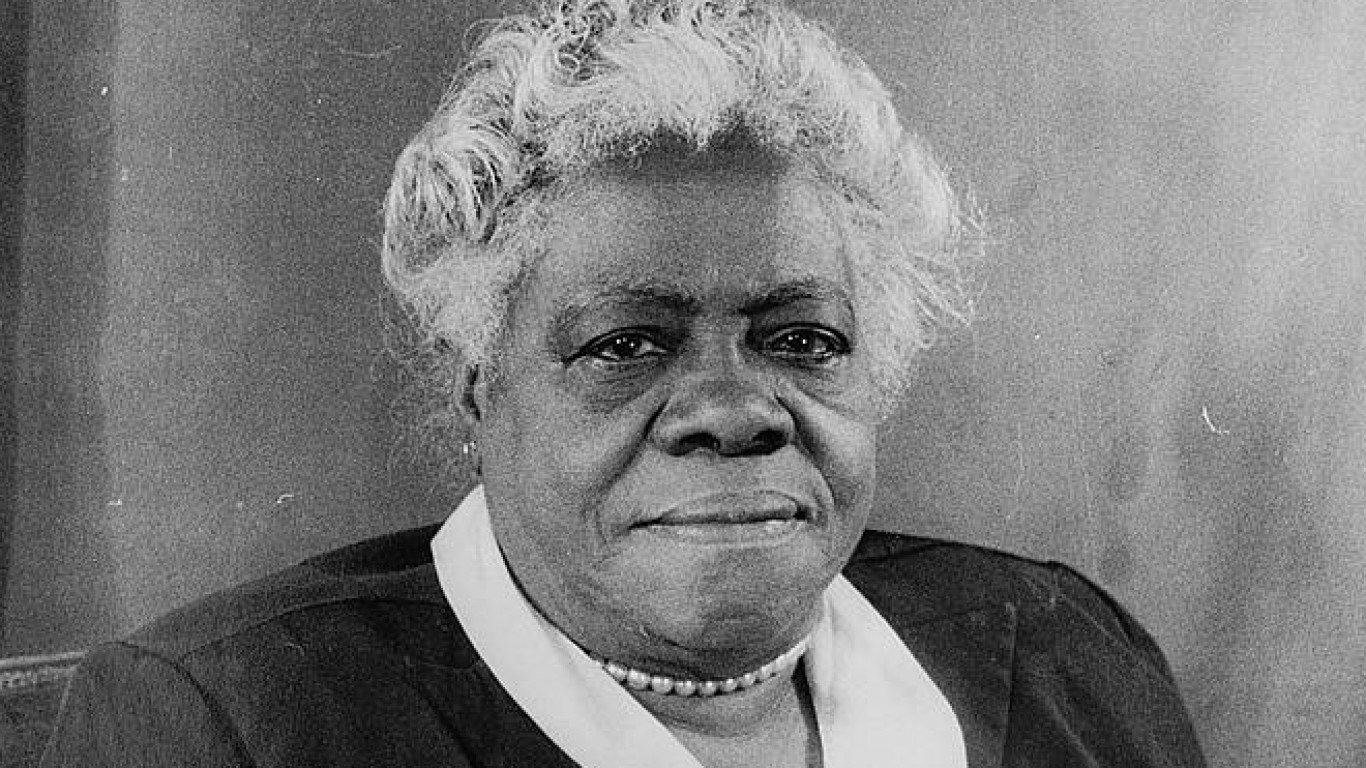
Mary McLeod Bethune
> Known as: Educator, activist
> Life: 1875-1955
Educator and activist Mary McLeod Bethune became the highest ranking African-American woman in government in 1936 when President Franklin Roosevelt named her as director of Negro Affairs of the National Youth Administration. She also was the only woman of color at the founding conference of the United Nations in 1945.
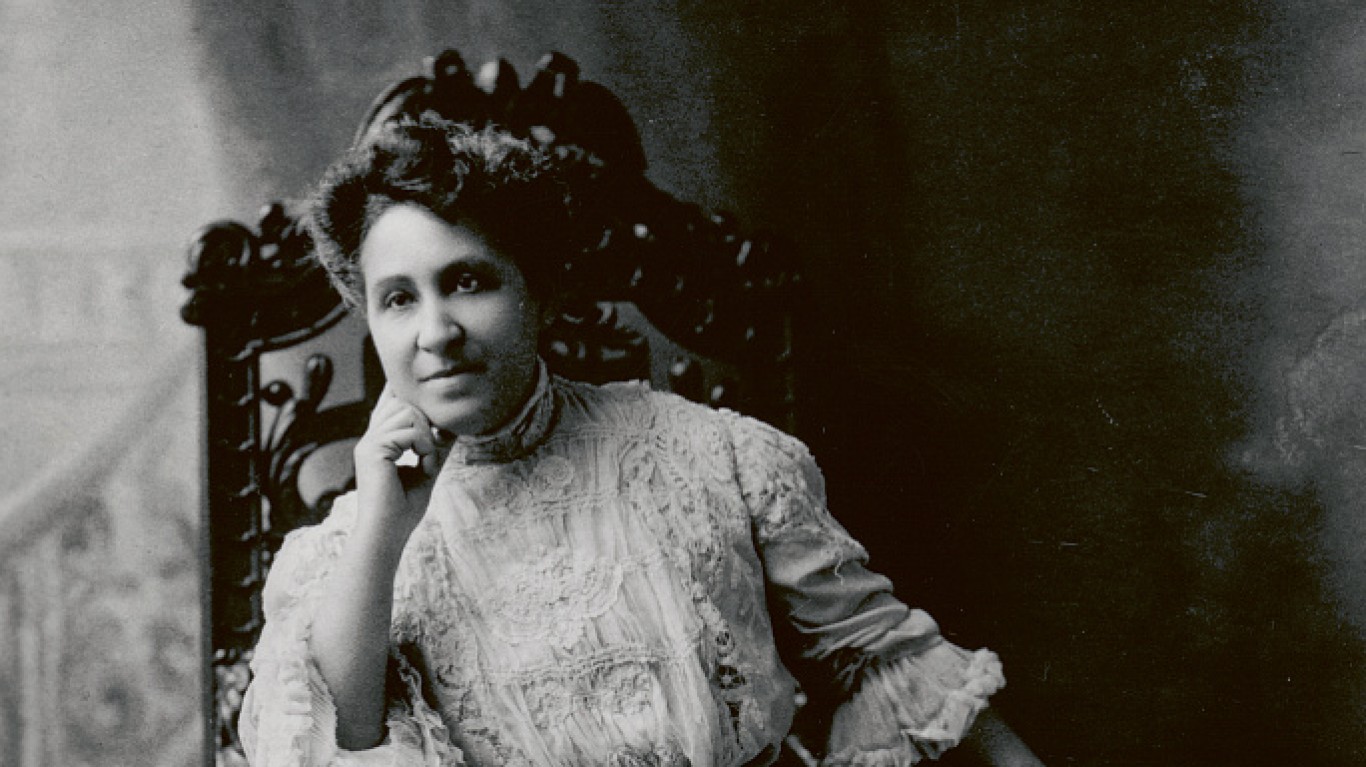
Mary Church Terrell
> Known as: Activist, suffragist
> Life: 1863-1954
Unlike many African-American female changemakers on the list, Mary Church Terrell came from an affluent background — her father was one of the South’s first Black millionaires — and she leveraged that status to fight racial injustice. After an acquaintance was lynched in Memphis because his business was successful, Terrell focused on raising up African-Americans by the means of education and community activism.
[in-text-ad-2]
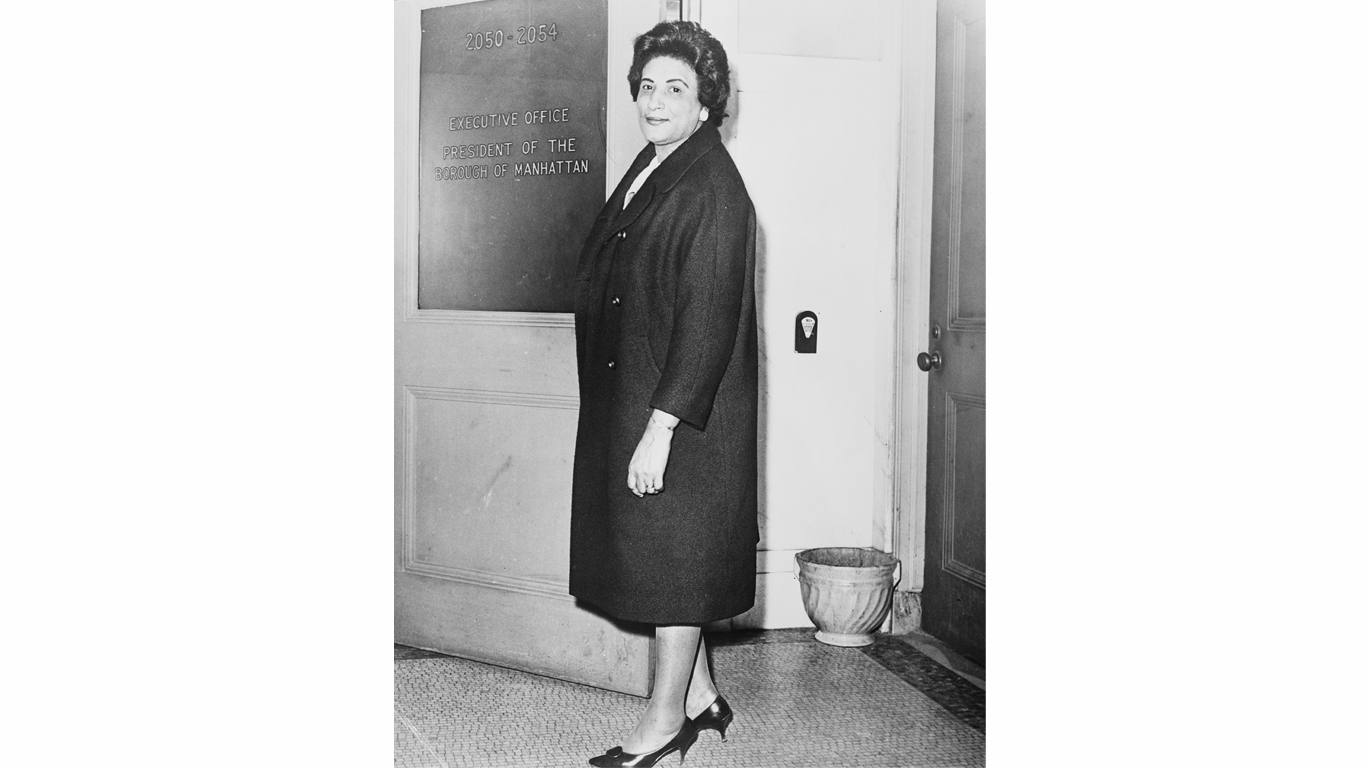
Constance Baker Motley
> Known as: Attorney, activist
> Life: 1921-2005
There were many firsts in the life of Constance Baker Motley. She was the first Black woman to attend Columbia Law School. In 1964 she became the first African-American woman elected to the New York State Senate. Two years later, President Lyndon Johnson appointed her as the first Black woman to become a federal judge. Motley was also a leading figure in the desegregation of Southern universities and public spaces.
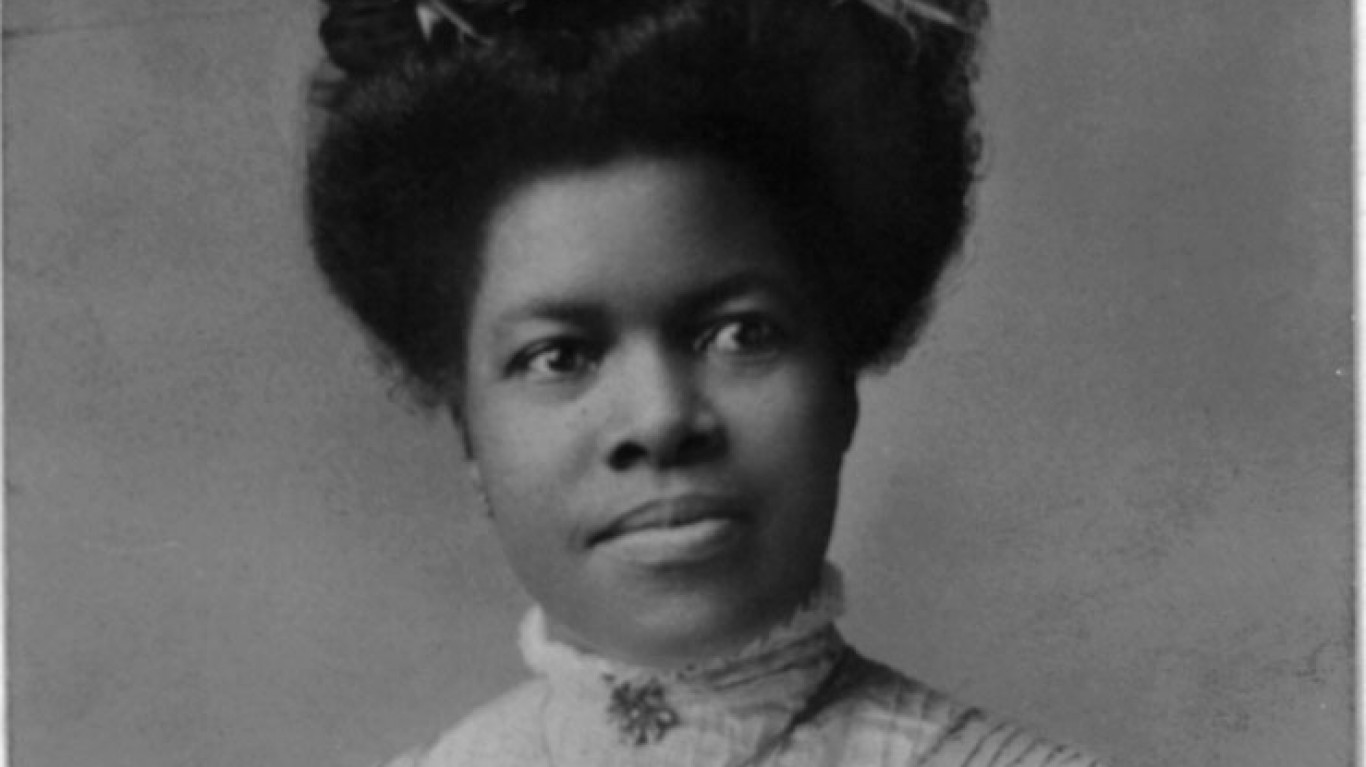
Nannie Helen Burroughs
> Known as: Activist, educator
> Life: 1879-1961
Born to former slaves in Virginia, Nannie Helen Burroughs, was a leading educator, feminist, and suffragist in the Washington, D.C., area. After she was rebuffed for a teaching job in the Washington, D.C., school system, Burroughs founded a school for girls and women — the National Training School for Women and Girls in 1909. She served as the school’s president until her death in 1961.
[in-text-ad]
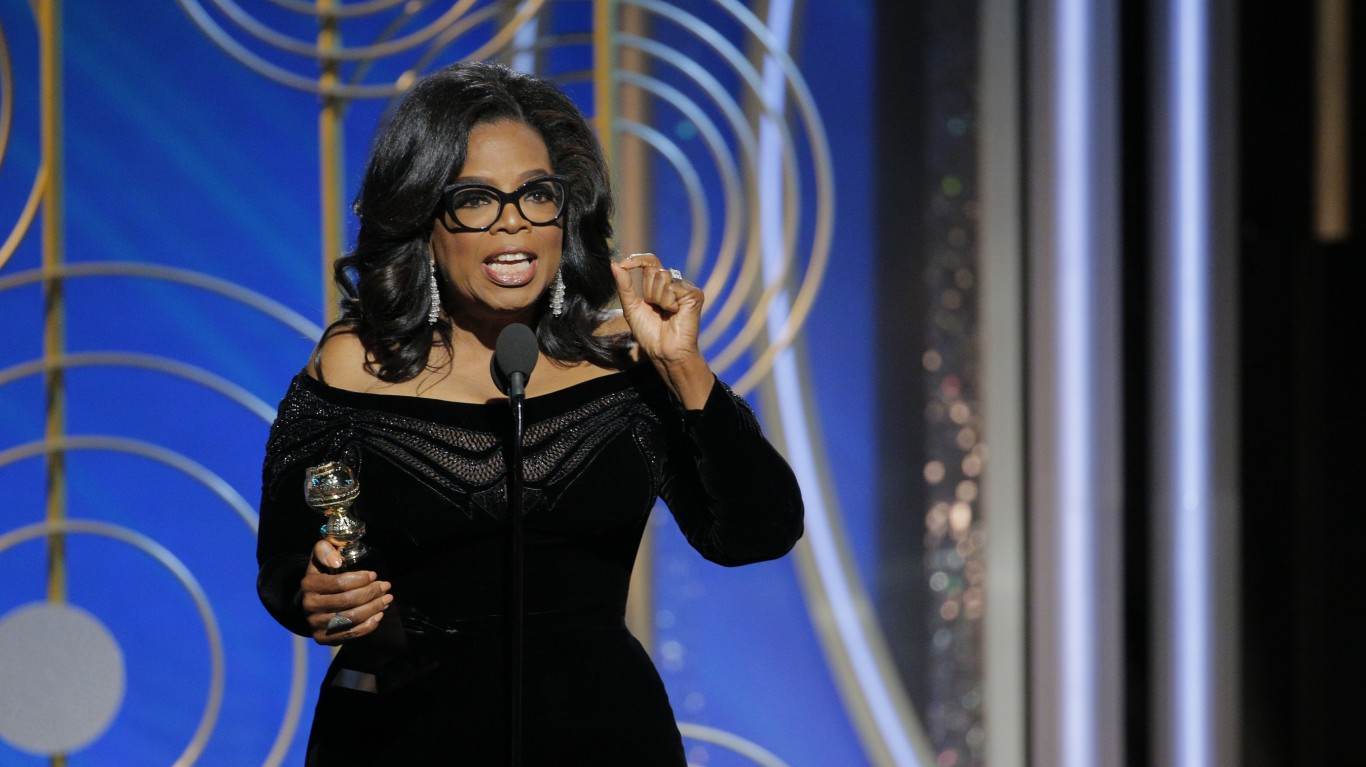
Oprah Winfrey
> Known as: Entrepreneur, activist
> Life: 1954-
Oprah Winfrey is the first Black billionaire, with a net worth of about $2.6 billion, according to Forbes. Winfrey was the host of a very popular daytime talk show that ran for 25 years, She grew her media empire to include a television network and a magazine. Winfrey leveraged her fame in support of projects such as a leadership academy for girls in South Africa and the presidential candidacy of Barack Obama.
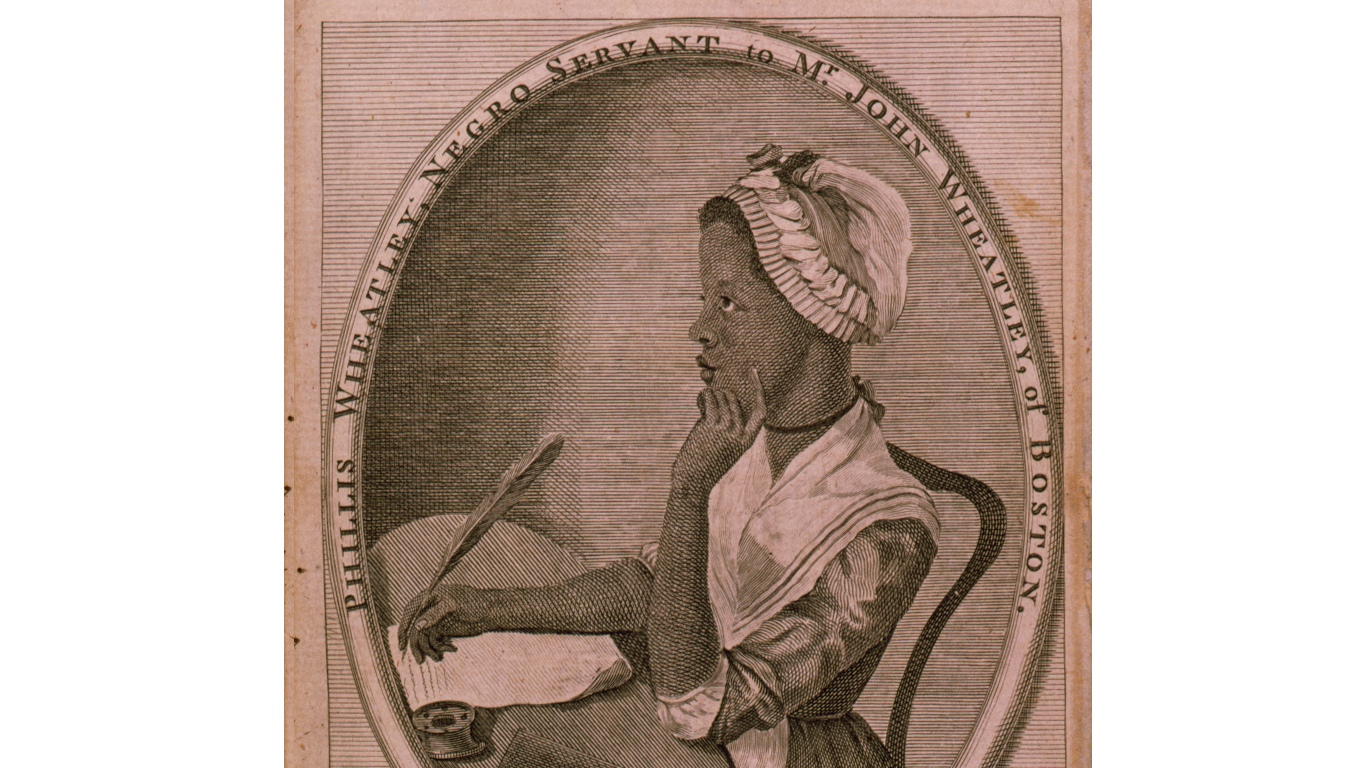
Phillis Wheatley
> Known as: Poet
> Life: 1753-1784
Taken from her native Gambia, Phillis Wheatley was brought to Boston in the mid-18th century and enslaved to the family of John Wheatley as a domestic. Aware of her intelligence, the Wheatleys taught her how to read and write. She eventually became a well-known poet in both New England and England, with her work “An Elegiac Poem, on the Death of that Celebrated Divine, and Eminent Servant of Jesus Christ, the Reverend and Learned George Whitefield,” celebrated on both sides of the Atlantic.
Clarissa M. Thompson
> Known as: Writer, educator
> Life: 1859-1941
Born to a middle-class family in South Carolina, Clarissa M. Thompson grew up during the Reconstruction era in South Carolina, becoming a schoolteacher at three different institutions, then moving to Texas, where she taught in public schools in Jefferson and Fort Worth. A supporter of women’s suffrage and temperance, she was also an author of numerous short stories and novellas.
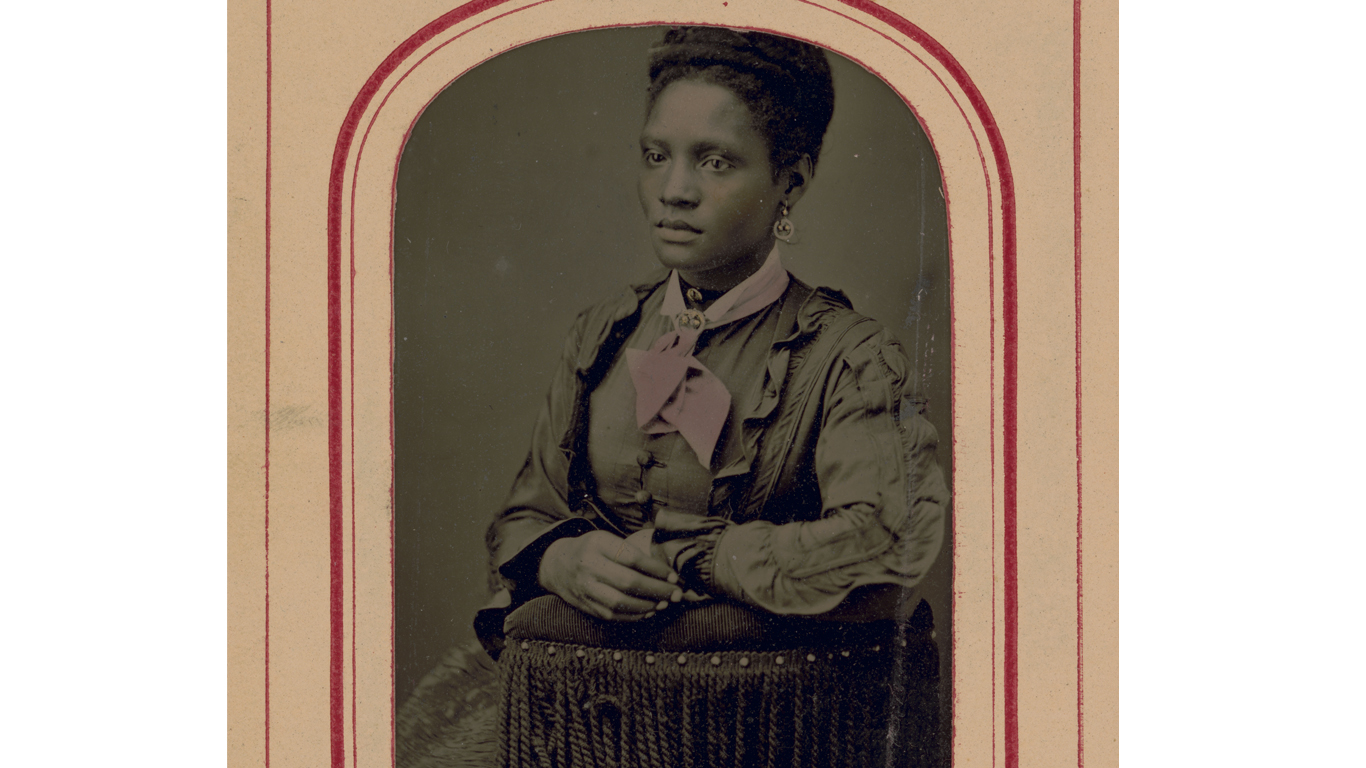
Laura A. Moore Westbrook
> Known as: Educator, activist
> Life: 1859-1894
An educator in Texas, Laura A. Moore Westbrook, the daughter of slaves, took on the cause of temperance. She joined the Woman’s Christian Temperance Union, the largest women’s organization in the country, and her life’s work centered around reducing crime and poverty by advocating for total abstinence from alcohol.
[in-text-ad-2]
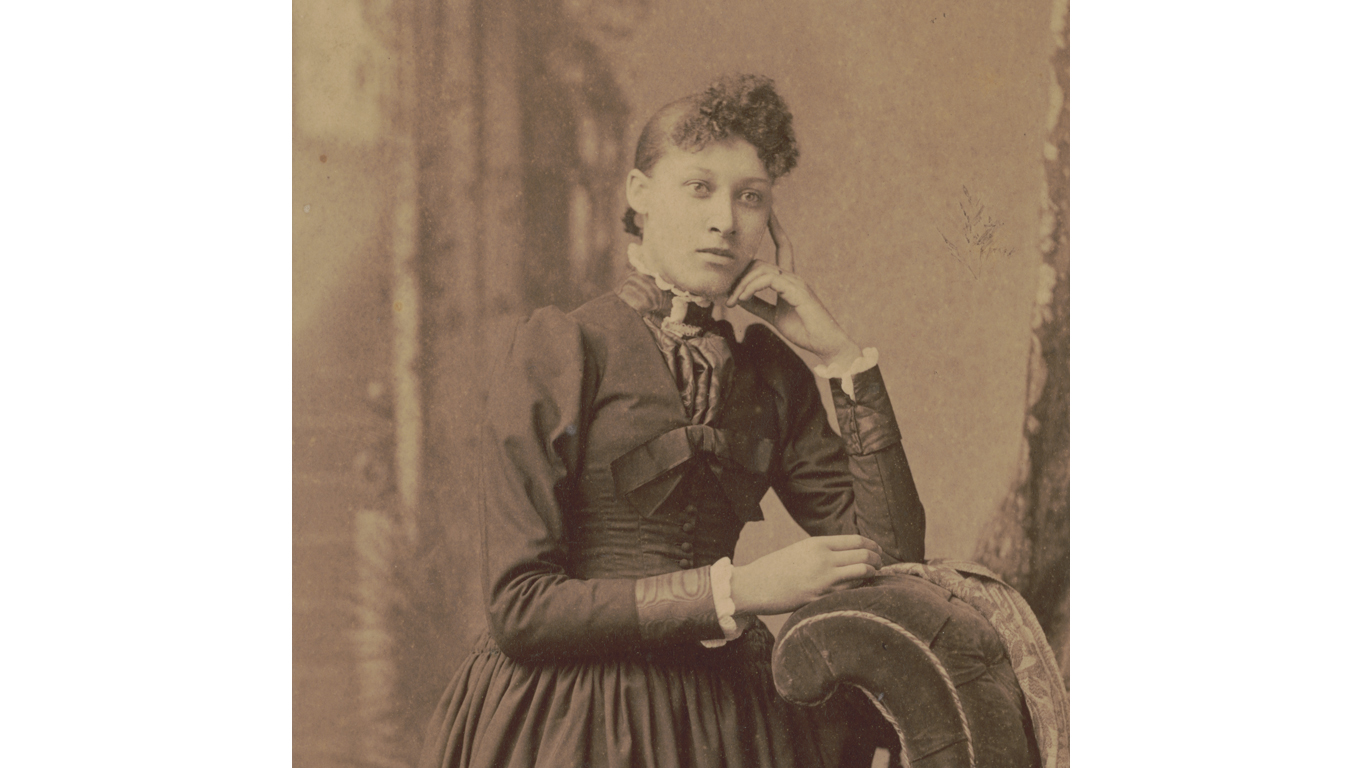
Lillian Parker Thomas
> Known as: Journalist
> Life: 1866-1917
Lillian Parker Thomas gained a reputation as an effective collaborator and organizer while working as a journalist for the Indianapolis News, where she was the first African-American to write a regular column. Thomas used her contacts and influence at the newspaper to further the cause of racial equality. She was also involved in the founding of the Woman’s Improvement Club, which helped African-Americans get health care.

Rosa Parks
> Known as: Activist
> Life: 1913-2005
Rosa Parks is one of the most famous figures in the civil rights movement. When she refused to give up her seat on a bus in Montgomery, Ala., she was arrested. This led to a citywide boycott of buses that lasted more than a year, until the Supreme Court ruled that bus segregation was unconstitutional. Park was awarded the Congressional Gold Medal and when she died in 2005 at the age of 92, she became the first woman in American history to lie in state in the U.S. Capitol.
[in-text-ad]
Susie King Taylor
> Known as: Nurse, author
> Life: 1848-1912
Though Susie King Taylor was born into slavery, that did not stop her from getting an education. She attended secret schools taught by African-Americans. Her literacy and skills as a nurse helped the African-American soldiers serving in the Union Army. She wrote “Reminiscences of My Life in Camp with the 33d United States Colored Troops, Late 1st S.C. Volunteers,” earning her the distinction of being the only African-American woman to publish an account of her experiences during the war.
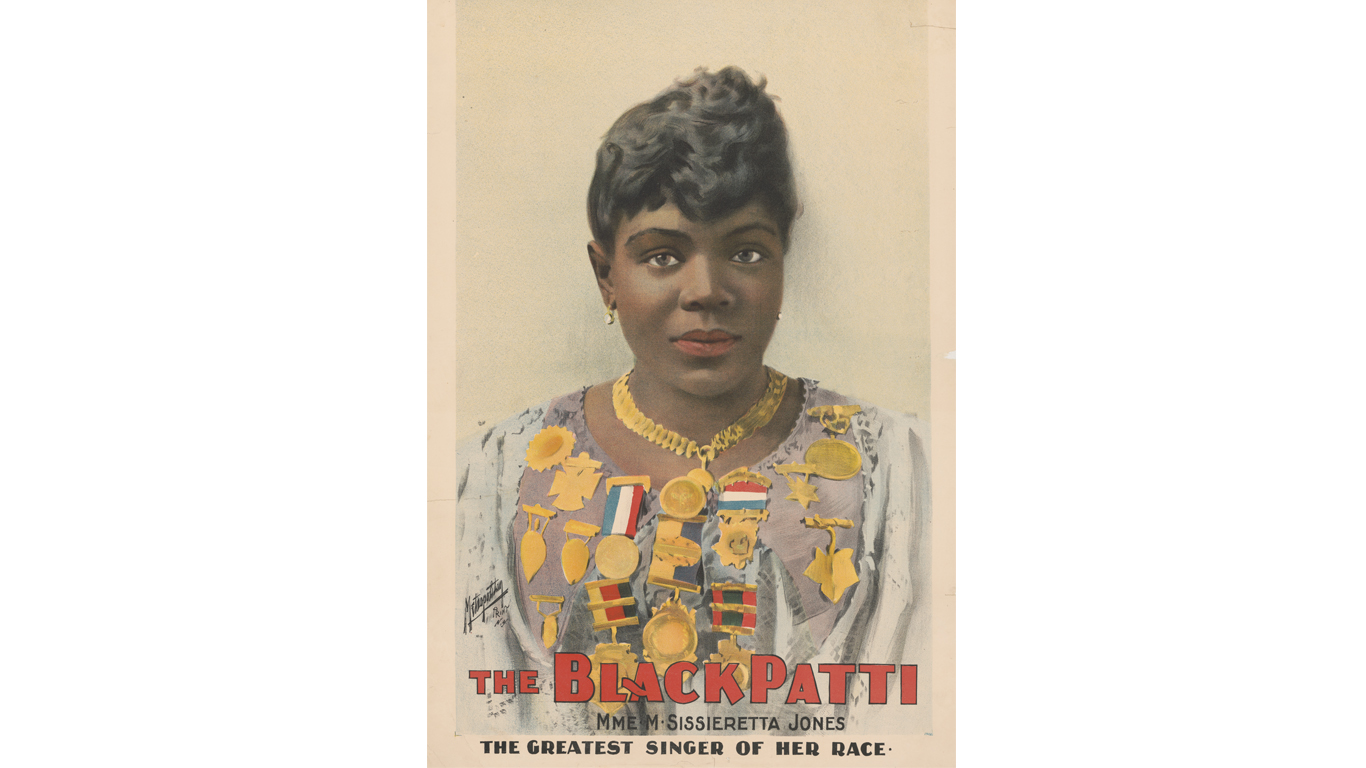
Sissieretta Jones
> Known as: Singer
> Life: 1869-1933
Born in Virginia to a pastor and singer in a church choir, Sissieretta Jones was an internationally acclaimed soprano. She became the first African-American to perform at Carnegie Hall in New York City in 1892. Jones sang classical opera in the United States and toured Europe, South America, Asia, Australia, and parts of Africa in the late 19th century and early 20th century.
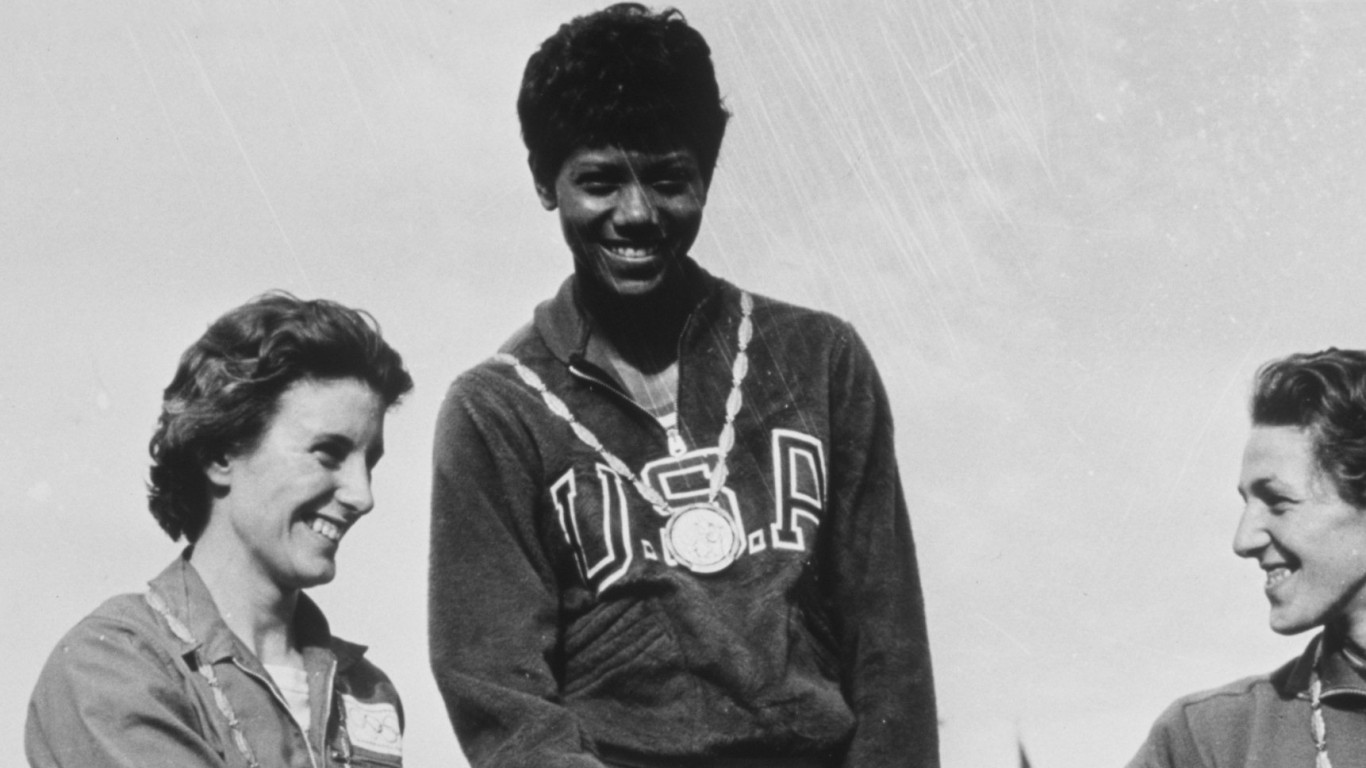
Wilma Rudolph
> Known as: Track and field athlete
> Life: 1940-1994
Wilma Rudolph contracted polio as a child, and wore a leg brace until she was 12, but that didn’t stop her from attaining track and field immortality. Rudolph became the first U.S. woman to win three gold medals in a single Olympics, in Rome in 1960 — earning her praise as “the fastest woman on earth.” Later in life, she became a schoolteacher, a civil rights activist, and an ABC Sports commentator for the 1984 Olympics in Los Angeles.
Zora Neale Hurston
> Known as: Writer, anthropologist
> Life: 1891-1960
Zora Neale Hurston devoted her life to studying and promoting Black culture and folklore. Though her short stories and fiction writing were initially ignored by mainstream media, she gained a following in the African-American community. Among her works are novels, satirical works, a book about voodoo in Haiti and Jamaica, and is a collaboration with celebrated poet and playwright Langston Hughes titled “Mule Bone: A Comedy of Negro Life.”
Credit Card Companies Are Doing Something Nuts
Credit card companies are at war. The biggest issuers are handing out free rewards and benefits to win the best customers.
It’s possible to find cards paying unlimited 1.5%, 2%, and even more today. That’s free money for qualified borrowers, and the type of thing that would be crazy to pass up. Those rewards can add up to thousands of dollars every year in free money, and include other benefits as well.
We’ve assembled some of the best credit cards for users today. Don’t miss these offers because they won’t be this good forever.
Flywheel Publishing has partnered with CardRatings for our coverage of credit card products. Flywheel Publishing and CardRatings may receive a commission from card issuers.
Thank you for reading! Have some feedback for us?
Contact the 24/7 Wall St. editorial team.
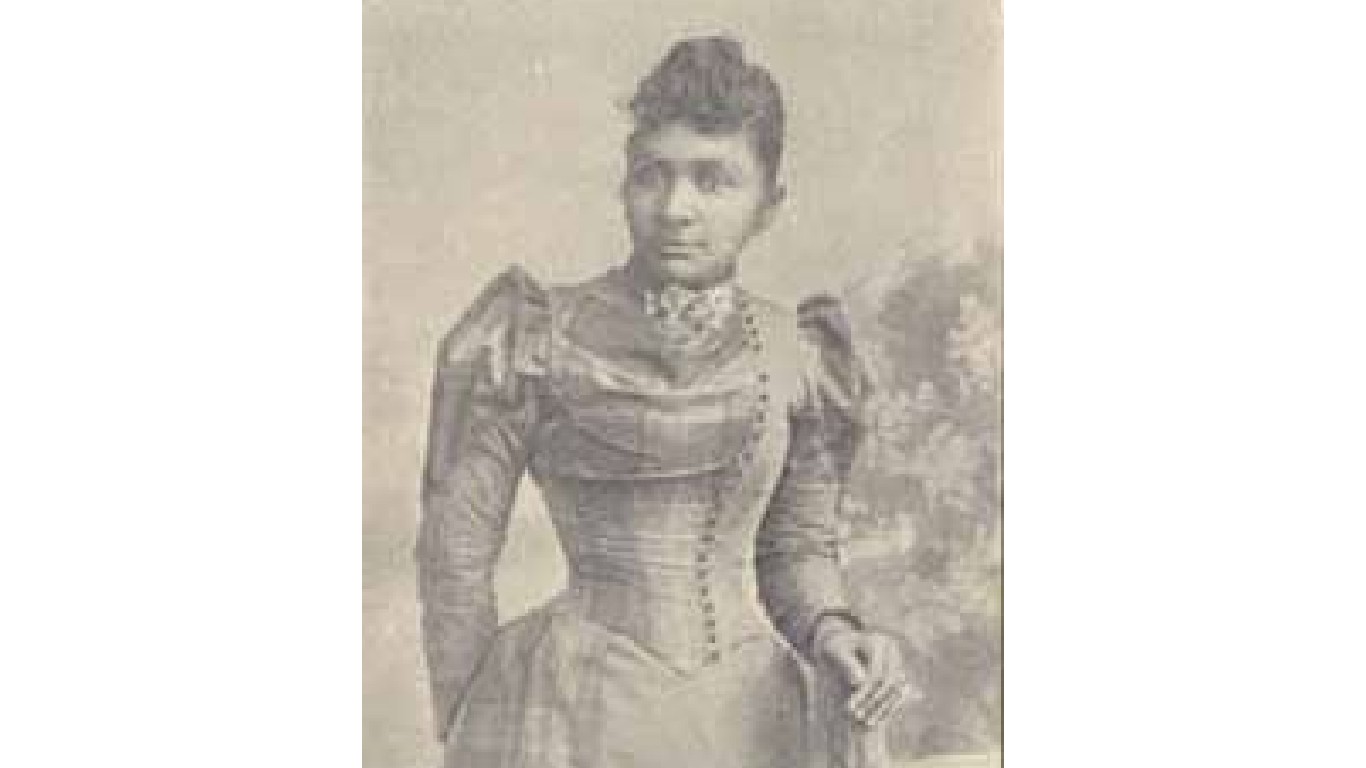
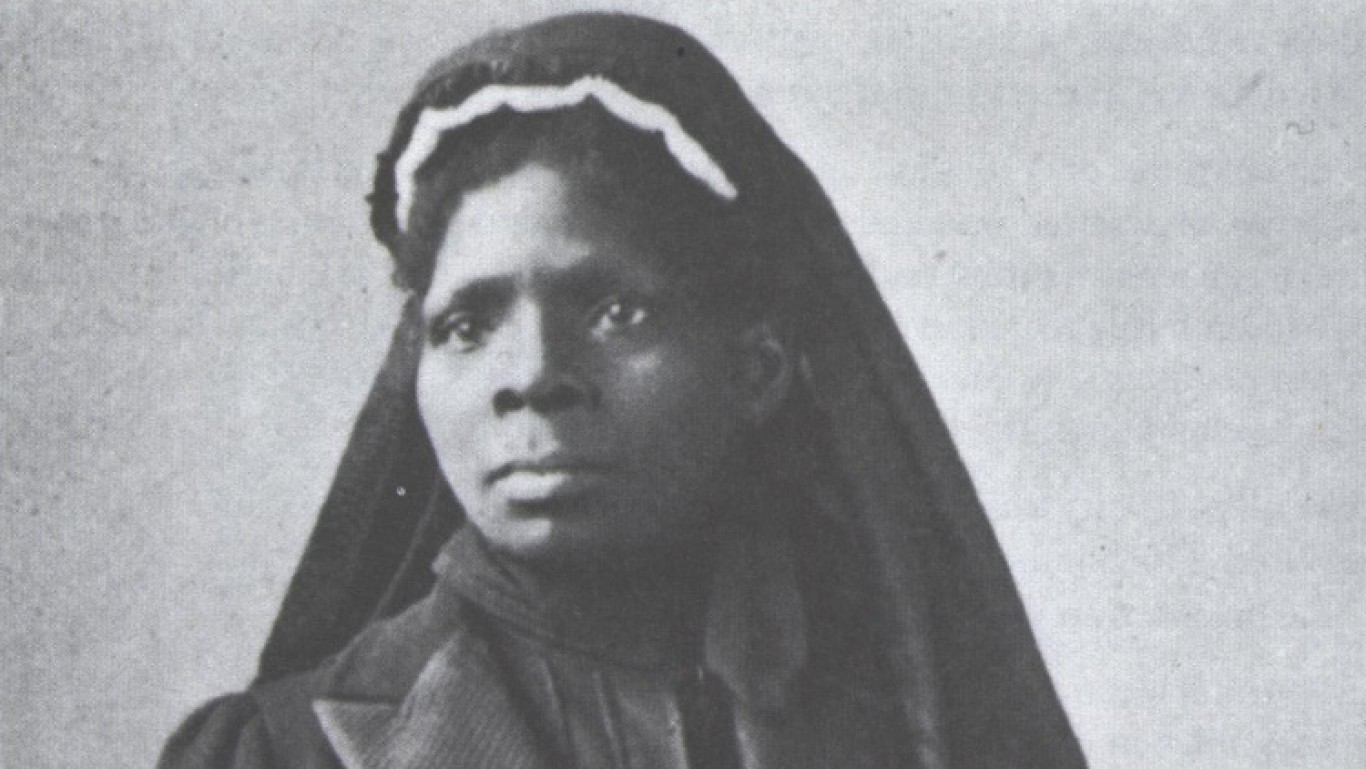
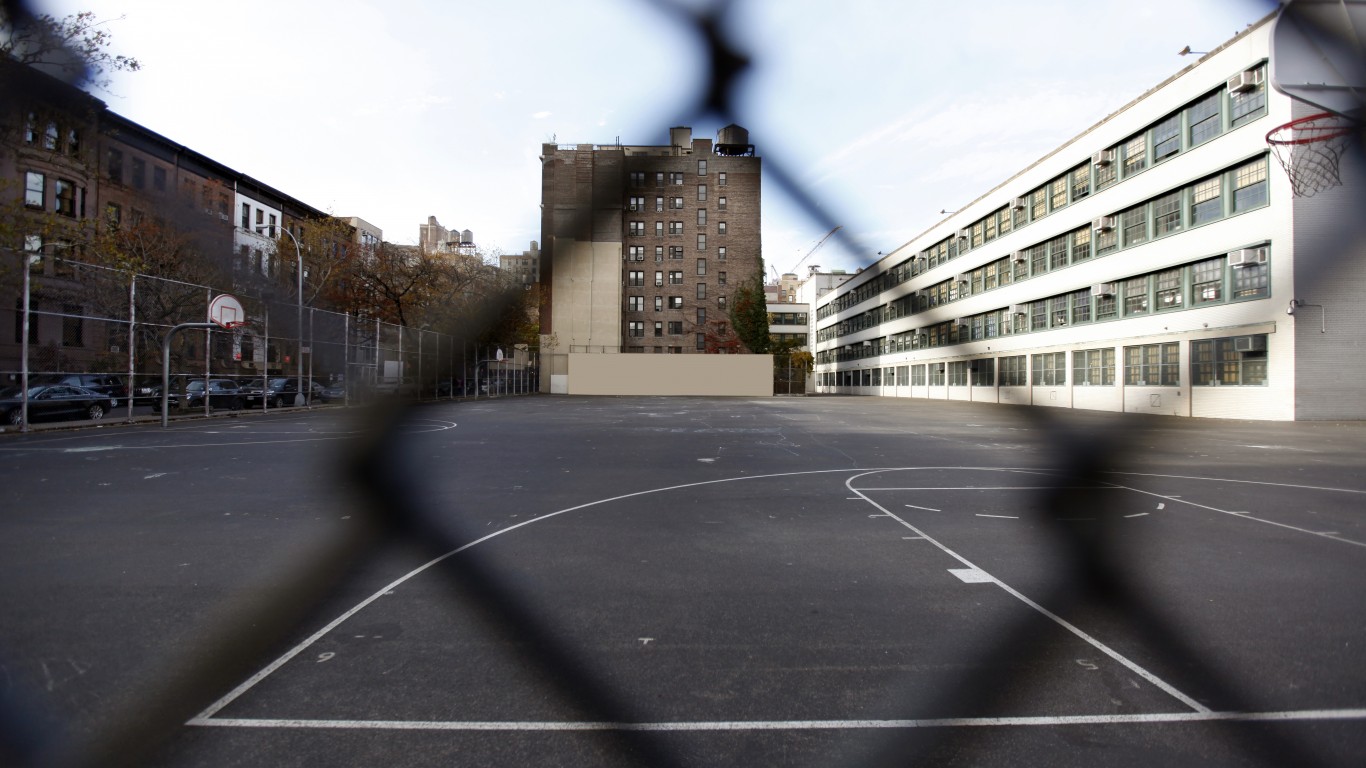 24/7 Wall St.
24/7 Wall St.